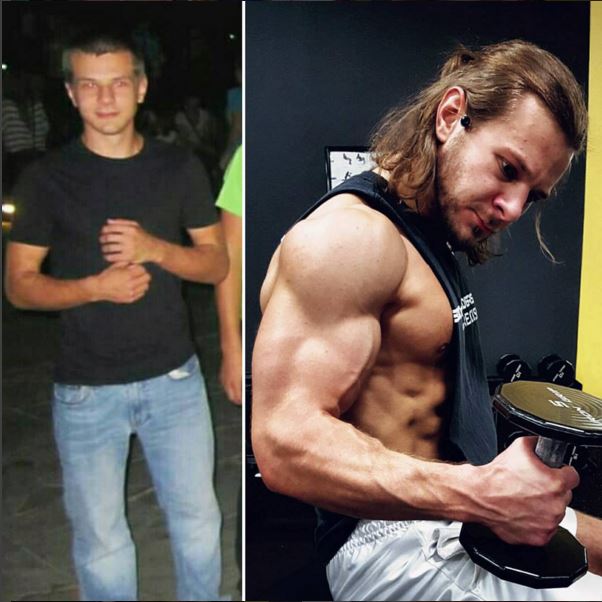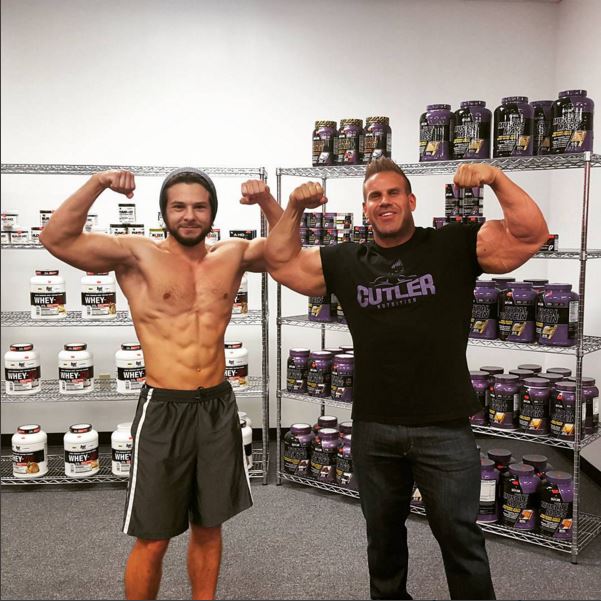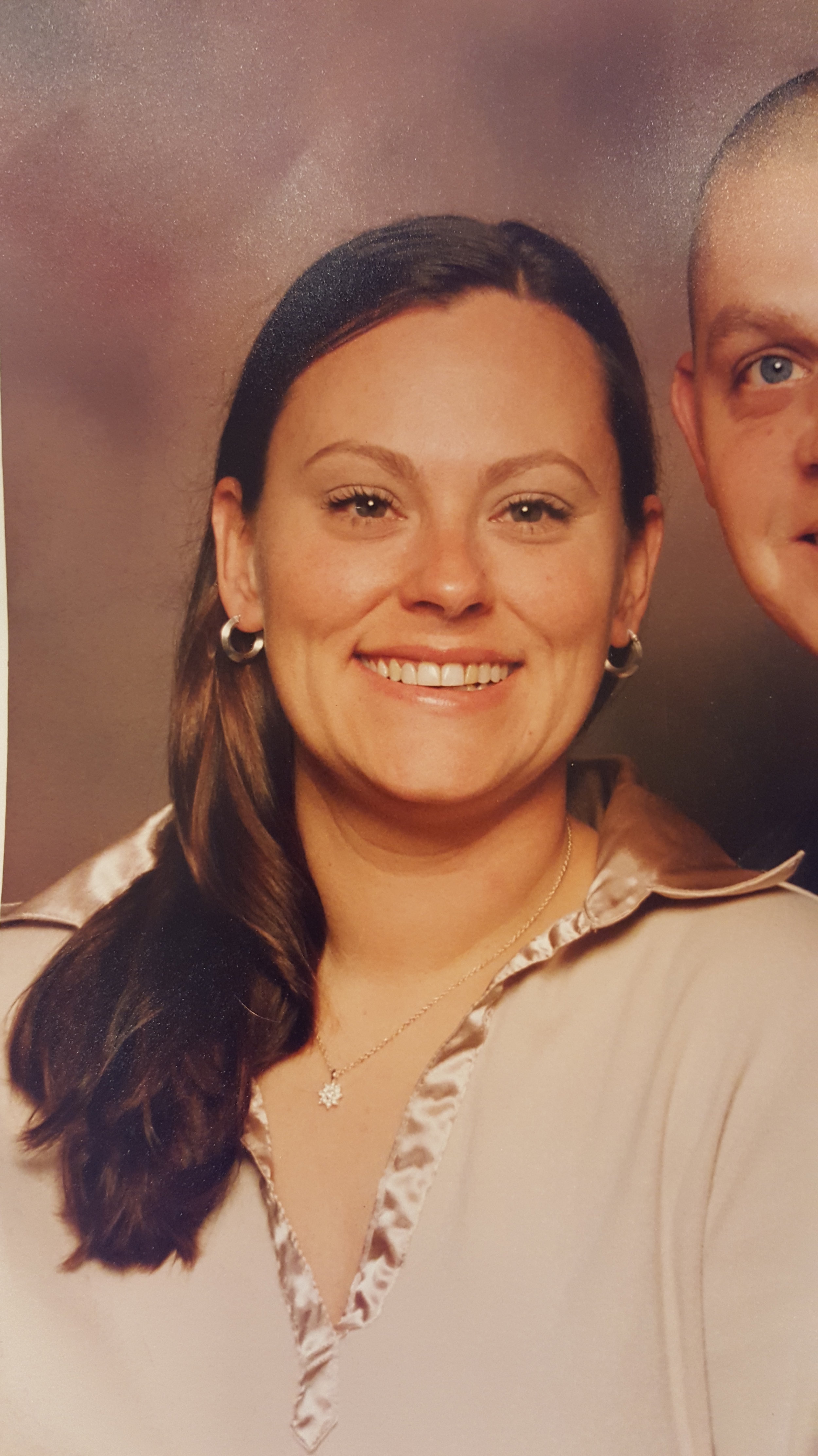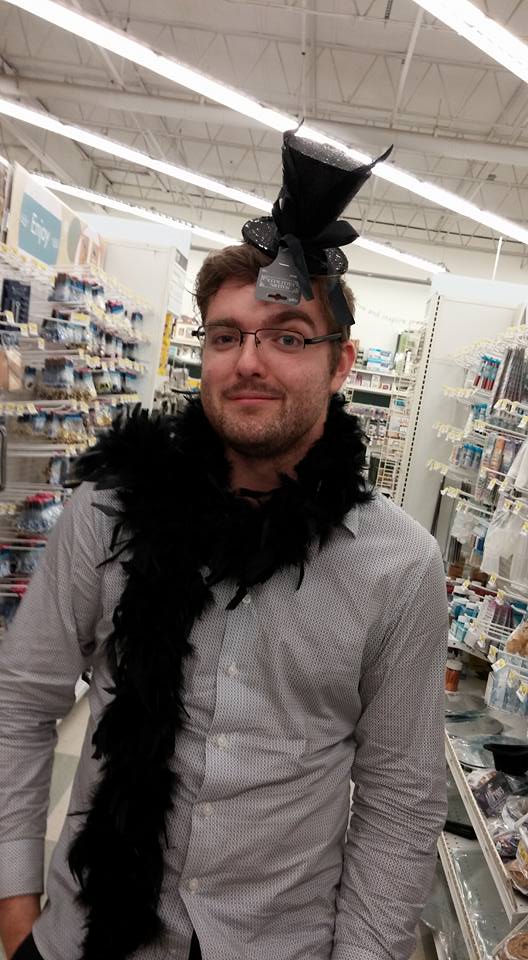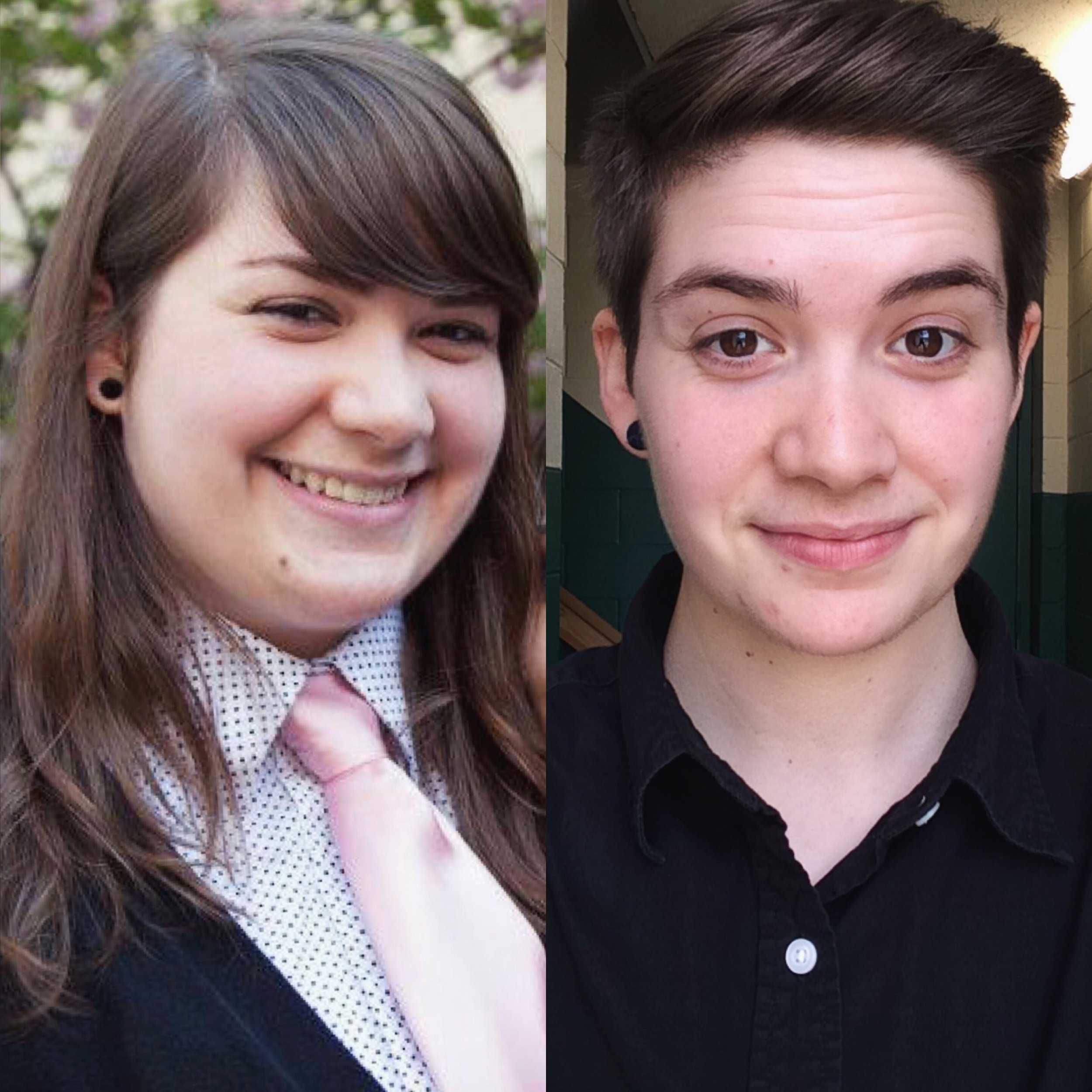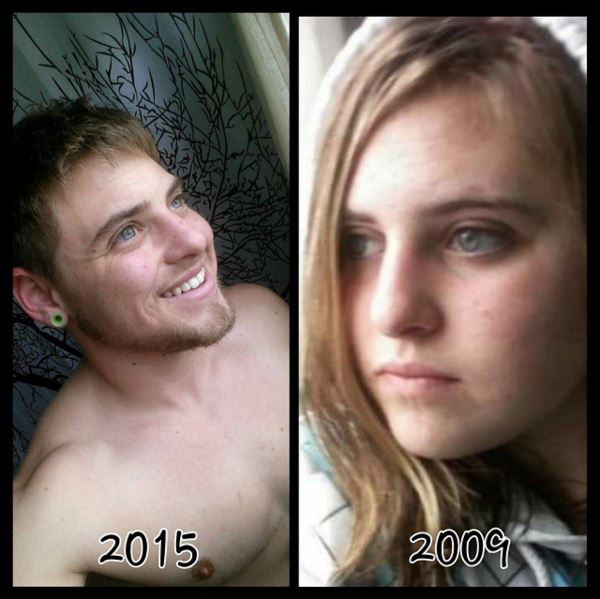 Name: Jayden Phillips
Age: 25
Name: Jayden Phillips
Age: 25
Subject: General Self-Improvement
Original Goal: To lose weight and gain muscle
Today’s Goal(s): To make it a point every day to positively affirm himself and do things that take him out of his comfort zone so that he can continue to grow as a person both mentally and physically.
Advice: “Be true to yourself and love yourself first. Don’t be afraid to be different because that difference is in fact what makes you special.”
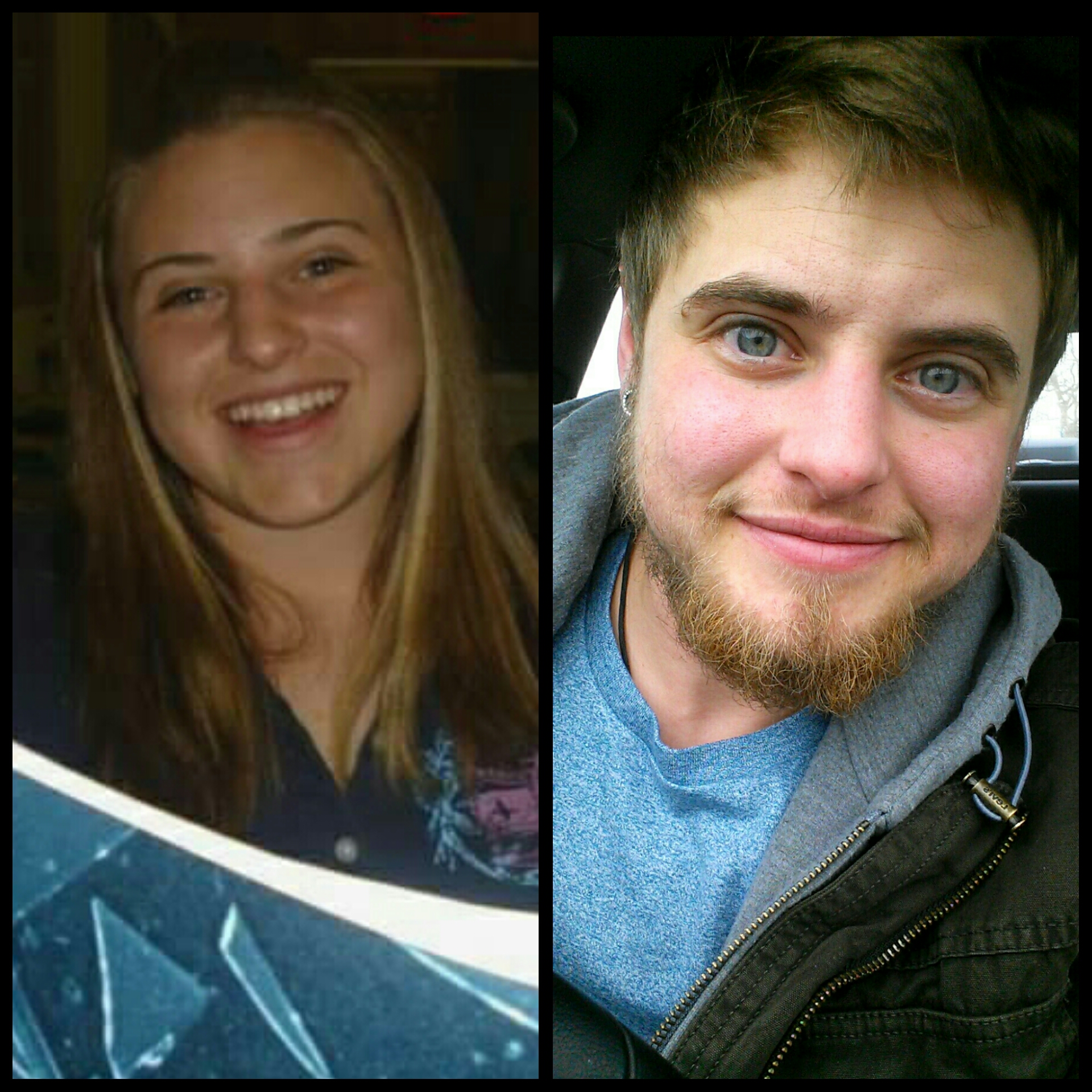 Story: Growing up, playing sports was Jayden’s passion. He was involved with six different teams throughout middle and high school - three traveling teams and three school teams. Not only did Jayden play softball and field hockey, but he was good - so good he went on to play Field Hockey at the Division I collegiate level. He played for two years until he had to make the difficult decision to leave the University. Jayden knew he needed to find himself help so he voluntarily admitted himself to the hospital for self-injury and suicidal ideation.
Story: Growing up, playing sports was Jayden’s passion. He was involved with six different teams throughout middle and high school - three traveling teams and three school teams. Not only did Jayden play softball and field hockey, but he was good - so good he went on to play Field Hockey at the Division I collegiate level. He played for two years until he had to make the difficult decision to leave the University. Jayden knew he needed to find himself help so he voluntarily admitted himself to the hospital for self-injury and suicidal ideation.
He had suffered from both since he was 17. Over the years, he had gotten pretty good at hiding his true feelings from those in his life. In hindsight, he says his depression was written all over his face and etched onto his skin all over his body. He felt guilt and shame for the harm he caused himself and he didn't understand why he felt the need to engage in harmful behaviors. Now, he recognizes that self-harm was a means of escaping his emotional pain. In his eyes, his mental suffering was, by far, worse than the physical pain he caused himself regularly.
 What caused this emotional turmoil? Jayden’s sexuality. It was what consumed his thoughts and overwhelmed his mind during this time in his life. Being outside the hetero-normative had and still has a cultural stigma. At 12 years of age, Jayden remembers the first time he acknowledged his attraction to the same sex; he didn't dare share those thoughts with anyone--at least not for a few more years. It wasn’t until he turned 17 that Jayden, a high school senior at the time, boldly came out as bi-sexual. Struggling to adjust to the strong opinions and hatred he perceived from the world, self-harm became part of his everyday routine. From 17 on, Jayden struggled, but not alone; he had a support network of family, friends and professionals. Therapy was an important part of working out his own internalized issues with sexuality. Therapy helped Jayden do some introspection for more answers during college and this process led him to begin to identify as gay at the age of 19. With the transitioning from one label to another more appropriate label, Jayden found a sense of relief, but he knew that label wasn’t quite right.
What caused this emotional turmoil? Jayden’s sexuality. It was what consumed his thoughts and overwhelmed his mind during this time in his life. Being outside the hetero-normative had and still has a cultural stigma. At 12 years of age, Jayden remembers the first time he acknowledged his attraction to the same sex; he didn't dare share those thoughts with anyone--at least not for a few more years. It wasn’t until he turned 17 that Jayden, a high school senior at the time, boldly came out as bi-sexual. Struggling to adjust to the strong opinions and hatred he perceived from the world, self-harm became part of his everyday routine. From 17 on, Jayden struggled, but not alone; he had a support network of family, friends and professionals. Therapy was an important part of working out his own internalized issues with sexuality. Therapy helped Jayden do some introspection for more answers during college and this process led him to begin to identify as gay at the age of 19. With the transitioning from one label to another more appropriate label, Jayden found a sense of relief, but he knew that label wasn’t quite right.
“None of these labels on my sexuality ever felt completely right. I still felt lost. I still felt different. I still felt that there was something else missing.”
After leaving college Jayden met a girl whose friend was transgender and after getting to know him found that the similarities within their lives were unprecedented. This man opened a whole new world of possibility and he gave Jayden the knowledge and the language that he would have otherwise never been exposed to had they not met. Jayden began to understand that he was not alone in his thoughts and in his feelings. “It all made perfect sense,” he said. As a young child he was constantly asking questions like, ‘Why can’t I be like the boys?’; ‘Why can't I wear a suit like the other boys making confirmation at church?’; ‘Why can’t I play football?’; ‘Why can’t I stand to pee?’ The questions and conversations went on and on. He didn't like pink, purple, or butterflies; He associated those things with girls. He wanted things that boys played with, used and wore. Society told him that as a female he was supposed to like all these things. Society told him to do all these feminine things, but the truth was that those things didn’t suit his interests. “I always felt different from all the other girls, and I was,” he said.
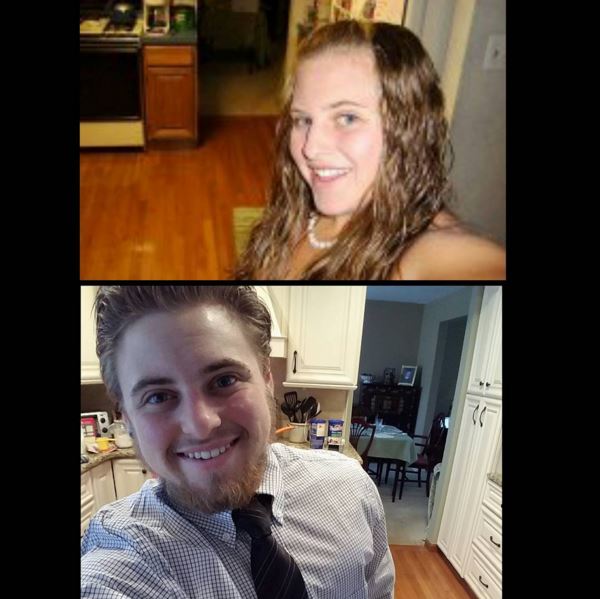 Although sexuality played a part in his internal struggles growing up, gender identity was ultimately the reason behind Jayden’s pain. At the age of 21 he came out as transgender with a fully supportive group of family and friends. This support made his transition from female to male much easier. What’s more, Jayden makes it clear that he couldn’t be more thankful to those in his life for that support, patience and acceptance.
Although sexuality played a part in his internal struggles growing up, gender identity was ultimately the reason behind Jayden’s pain. At the age of 21 he came out as transgender with a fully supportive group of family and friends. This support made his transition from female to male much easier. What’s more, Jayden makes it clear that he couldn’t be more thankful to those in his life for that support, patience and acceptance.
After extensive research about local transgender care, Jayden decided to go to the Mazzoni Center, a LGBT health services office in Philadelpia, PA. He had two initial doctors appointments at the Mazzoni Center before being prescribed testosterone--one with a Trans intake specialist and another with a doctors to go over his bloodwork and the Mazzoni’s ‘informed consent’ policy of care, which was to ensure he was aware of what he was about to do. Another requirement before treatment was a letter from his therapist validating that he in fact suffered from gender dysphoria and that hormone treatment was the next necessary step. On August 12, 2012 Jayden gave himself his first shot of testosterone which he now takes once a week subcutaneously (into fat).
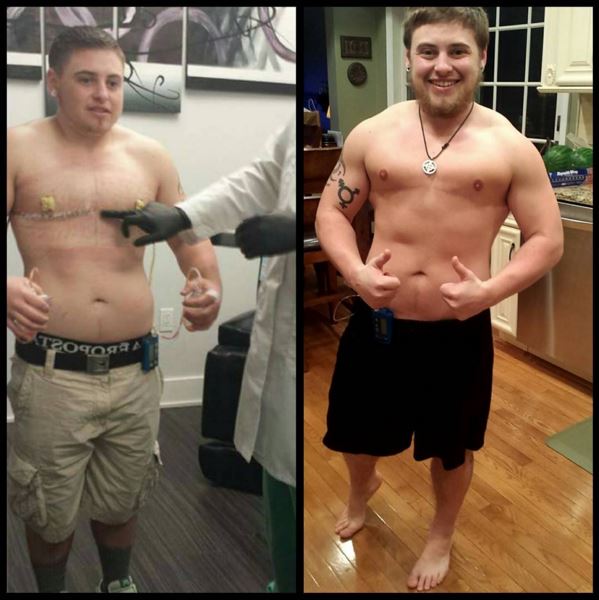 At 5 feet tall and 180 lbs, Jayden was looking to masculinize his figure. His primary goals were to lose weight and gain muscle in preparation for his chest surgery, essentially getting his body in the best shape he could beforehand. Cardio helped him shed some of those unwanted pounds, but he makes it clear that he was never one to run; he never had good stamina. After an important shift in mindset, Jayden dedicated himself to the gym so he could not only achieve his physical health goals, but also achieve goals pertaining to his own wellbeing and happiness. He did cardio almost every day along with weight training up until the date of his chest surgery. In January 2014 Jayden traveled with his parents to Fort Lauderdale, Florida to undergo female to male reconstructive chest surgery. This consisted of a double mastectomy and resizing of the nipples, as male nipples are generally smaller than females’. The procedure went well and set him on a path to be clear for activity in six short weeks. After he did the necessary resting, he jumped back into the gym-- this time with even more confidence. He was constantly releasing endorphins and losing weight. At 140 lbs he was feeling wonderful.
At 5 feet tall and 180 lbs, Jayden was looking to masculinize his figure. His primary goals were to lose weight and gain muscle in preparation for his chest surgery, essentially getting his body in the best shape he could beforehand. Cardio helped him shed some of those unwanted pounds, but he makes it clear that he was never one to run; he never had good stamina. After an important shift in mindset, Jayden dedicated himself to the gym so he could not only achieve his physical health goals, but also achieve goals pertaining to his own wellbeing and happiness. He did cardio almost every day along with weight training up until the date of his chest surgery. In January 2014 Jayden traveled with his parents to Fort Lauderdale, Florida to undergo female to male reconstructive chest surgery. This consisted of a double mastectomy and resizing of the nipples, as male nipples are generally smaller than females’. The procedure went well and set him on a path to be clear for activity in six short weeks. After he did the necessary resting, he jumped back into the gym-- this time with even more confidence. He was constantly releasing endorphins and losing weight. At 140 lbs he was feeling wonderful.
Since hitting that 40lb mark, Jayden has gained 10lb, but one thing sets him apart: his mindset. He is persistent in reminding himself that his journey isn't over and, in fact, it will never be over. His journey to his best self is just that, a journey. He believes that if he remains positive and motivated he can achieve anything he sets out to do including staying disciplined in the kitchen and getting back to where he wants to be on the scale. Although, he says, “It’s not always about the number, it’s about how you feel”.
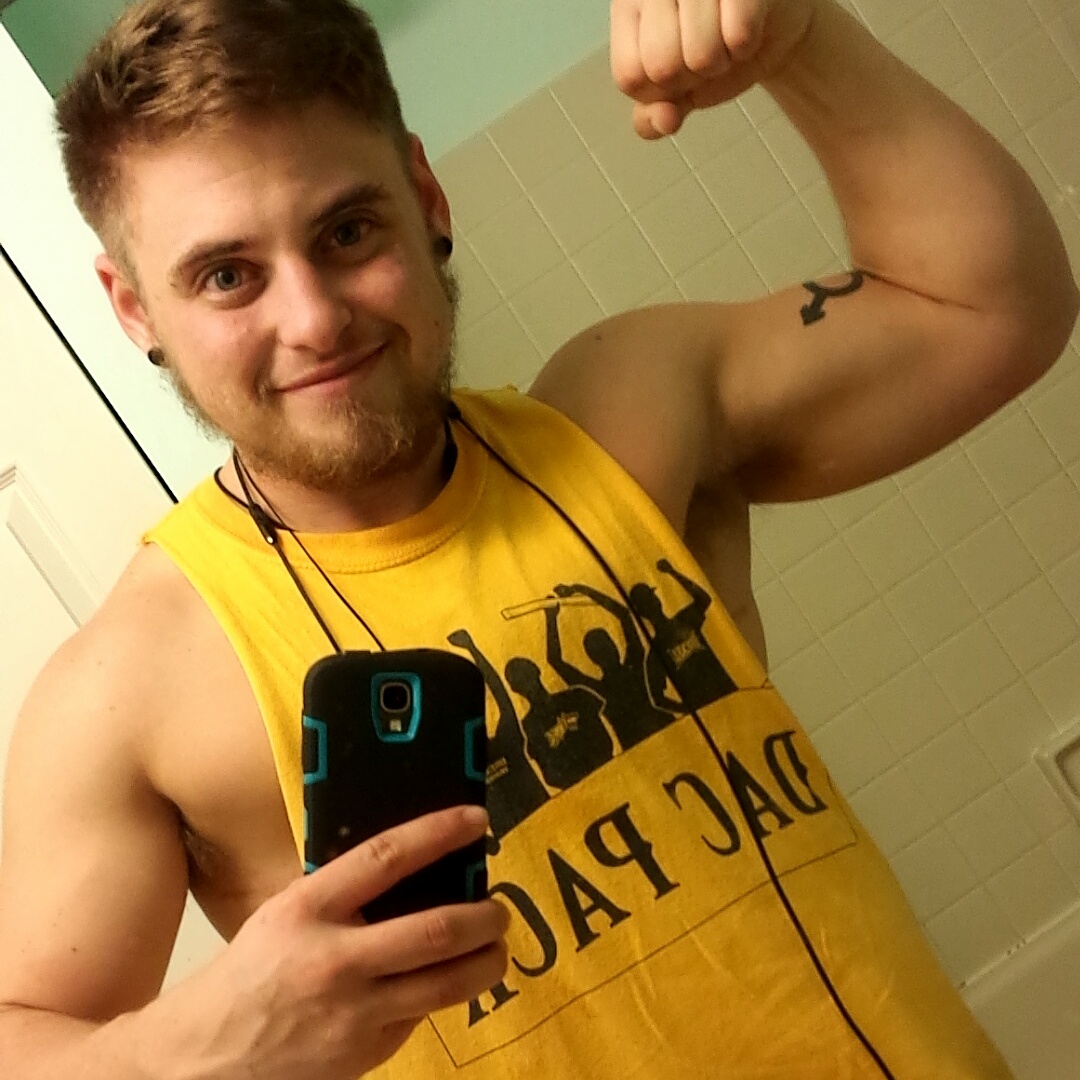 Additionally, Jayden is motivated to stay healthy as he is a Type 1 Diabetic. He was diagnosed with Type 1 Diabetes at 12 years old on Wednesday. November 26, 2003. It was the day before Thanksgiving. He was taken out of school early by his mother, a nurse, to go to the doctor. Jayden had no idea what was going on with his body, but his mother had a pretty strong feeling that Diabetes was going to be the diagnosis after talking about it with her nursing friends. Jayden had all the symptoms in the book--extreme thirst, frequent urination (especially during the night, he would wake up 3 to 4 times to go), extreme hunger, unexplained weight loss (about 20 lbs in 2 weeks), dry skin, hair loss, decreased immune system, discontinued period, loss of muscle, vision impairment, you name it. Jayden’s entire body was shutting down. At the doctor’s office they tested his urine and checked his sugar level with a finger stick. He positively had Type 1 Diabetes. With a blood sugar level of 547mg/dl and large keytones, Jayden and his family then had the answer to all of his symptoms he’d been living with for close to about 9 months. His mother's immediate reaction was to cry, so being 12 years old and not really understanding what this all meant, Jayden too cried. At this point, Jayden and his mother left the doctor’s office, went back home to gather his things, and left for CHOP with his family where he would be admitted for three days to learn about Diabetes. Before he could go home, Jayden learned how to give himself insulin shots and how to count carbs. It was scary, but he was fully capable of taking the Disease on as his own. He would not let it define him or hold him back. In fact, the day he left the hospital his travel soccer team had a game and I went. He played as the goalkeeper, but not the entire time as it was a cold day and his fingers were sore from all the finger sticks that were done in the hospital. He NEVER let Diabetes stop him from doing anything. This diagnosis wasn’t a death sentence and he wasn't incapable of doing what he did previous to being diagnosed Diabetes. He simply had a little extra to worry about going forward. Jayden makes a point not to downplay Diabetes and the struggles that come with it, but he does say that he has always tried his best to stay positive about it. Growing up he made sure that he learned everything he needed to know in order to take care of himself. The best thing he did was own it and learn to manage it.
Additionally, Jayden is motivated to stay healthy as he is a Type 1 Diabetic. He was diagnosed with Type 1 Diabetes at 12 years old on Wednesday. November 26, 2003. It was the day before Thanksgiving. He was taken out of school early by his mother, a nurse, to go to the doctor. Jayden had no idea what was going on with his body, but his mother had a pretty strong feeling that Diabetes was going to be the diagnosis after talking about it with her nursing friends. Jayden had all the symptoms in the book--extreme thirst, frequent urination (especially during the night, he would wake up 3 to 4 times to go), extreme hunger, unexplained weight loss (about 20 lbs in 2 weeks), dry skin, hair loss, decreased immune system, discontinued period, loss of muscle, vision impairment, you name it. Jayden’s entire body was shutting down. At the doctor’s office they tested his urine and checked his sugar level with a finger stick. He positively had Type 1 Diabetes. With a blood sugar level of 547mg/dl and large keytones, Jayden and his family then had the answer to all of his symptoms he’d been living with for close to about 9 months. His mother's immediate reaction was to cry, so being 12 years old and not really understanding what this all meant, Jayden too cried. At this point, Jayden and his mother left the doctor’s office, went back home to gather his things, and left for CHOP with his family where he would be admitted for three days to learn about Diabetes. Before he could go home, Jayden learned how to give himself insulin shots and how to count carbs. It was scary, but he was fully capable of taking the Disease on as his own. He would not let it define him or hold him back. In fact, the day he left the hospital his travel soccer team had a game and I went. He played as the goalkeeper, but not the entire time as it was a cold day and his fingers were sore from all the finger sticks that were done in the hospital. He NEVER let Diabetes stop him from doing anything. This diagnosis wasn’t a death sentence and he wasn't incapable of doing what he did previous to being diagnosed Diabetes. He simply had a little extra to worry about going forward. Jayden makes a point not to downplay Diabetes and the struggles that come with it, but he does say that he has always tried his best to stay positive about it. Growing up he made sure that he learned everything he needed to know in order to take care of himself. The best thing he did was own it and learn to manage it.
“Sometimes, when young kids are diagnosed with Diabetes it becomes the parents’ job to take care of everything, but I was at a perfect age to really understand how to take care of it for myself. My mom did help me tremendously, being a nurse, but I made sure that it was me who was doing my shots and it was me who was counting carbs and memorizing how many carbs were in different foods...etc. I am proud to say that I've had Diabetes for nearly 13 years and I've never been hospitalized for complications from diabetes other than my original diagnosis. I've managed to control this disease fairly well and that is something I'm very proud of. It is a difficult and frustrating disease but it’s important to stay positive and to not let it get me down.”
Jayden continually tries to remind myself how grateful he is that he is alive and lives in a time that has the technology and science available for him to live a happy, healthy life despite having diabetes. For the last 10 years he has demonstrated this gratefulness by being involved with an annual week-long overnight camp for kids with diabetes. He emphasizes what a blessing this has been for him. The life-long friendships and connections he’s made through camp are irreplaceable and he’s not sure he would have the same outlook on diabetes as he does today, had I not gone to camp at all. He was only a camper for two years, but he stayed and continued as a camp counselor every year since.
“It is rewarding and comforting to be around 100 plus people who all suffer from the same disease. We can relate to one another on a level that other non-diabetics can't. Sharing stories and experience with one another and knowing we aren't alone is what allows us to push through each day. So, if you are reading this and you know someone or you yourself face any of these challenges, just know that you are not alone and it will get better so long as you stay motivated, stay disciplined, stay active, stay inspired, and always stay true to yourself.”
Q&A
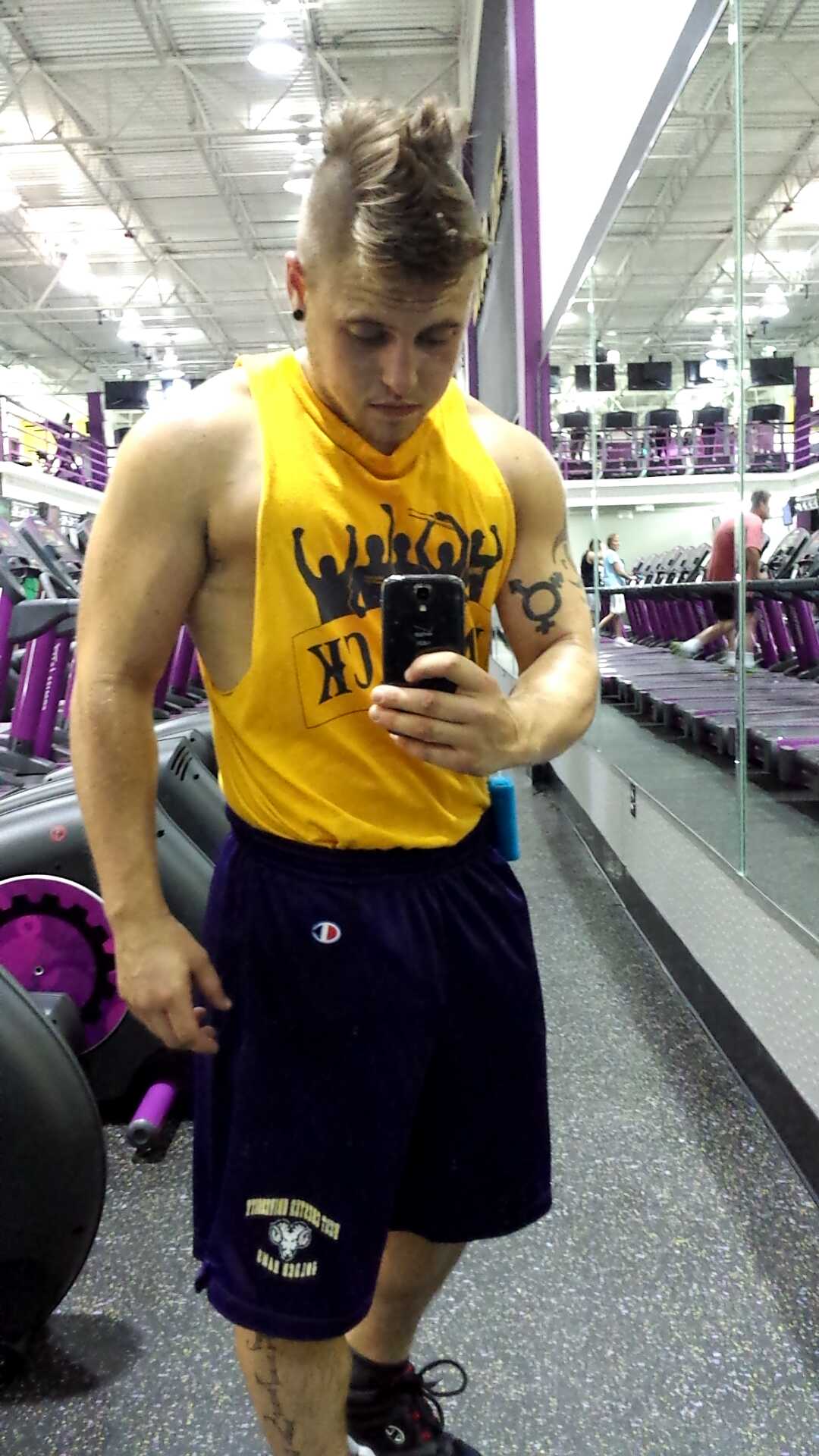 C: Can you talk more about your sports background?
C: Can you talk more about your sports background?
J: I ended his High school Field Hockey career as a 1st Team All American Field Hockey Goal Keeper. I played on a travel Field Hockey team called the Mystx that won both the indoor and outdoor national championships with him as their Goal Keeper. This led me to college at Drexel University, where I played Field Hockey on scholarship. My freshman year I started Goalkeeper and in that first year my team made it to the NCAA Elite 8 game ending our season with 19 wins (the highest number of wins in a single season). This record still holds true today! I also played travel softball for the Horsham Banshees from age 12-18 and was on the 2008 State Championship PIAA AAAA softball team at Hatboro Horsham High School. I didn’t play soccer for school because it was in the same season as softball but I did play travel soccer as a GK in middle school which I think helped me be a better FH Goalie. I also played varsity basketball my Freshman and Sophomore year of HS. Sports were definitely, my thing!
C: Can you talk a little bit more about how you view psychological pain versus physical pain?
J: For me physical pain served as distraction from my own thoughts. It was something I had control over whereas my thoughts I could not control. One pain would feed the other and vice versa, it was a vicious cycle. It almost became an addiction. Cutting for me was like a drug-- to distract myself and escape reality.
C: Can you delve a little deeper into your hospitalization?
J: My family was very supportive. Although I didn’t want any visitors, I know they wanted to see me because they were scared for me and love me very much. I believe my mom is the only one I allowed to visit and maybe my dad did too. I don’t quite remember. However, they were all always very supportive towards me throughout all my struggles. I self-injured multiple times a day, 50-100 cuts at a time, for the better part of 5 years. My 1st hospitalization came in January 2011 after my normal cutting behavior wasn’t enough to relieve the psychological pain I was feeling at the time. I wrote a note and I tied a tie around my neck attempting to choke myself in my college dorm room, but couldn’t do it. Immediately after this serious contemplation of suicide, I contacted my therapist who I had been seeing and working with since I arrived at college in 2009. It was my decision to ask for help and it was my decision to seek treatment. I knew I didn’t really want to end my life, but the mental state that I was in had me contemplating suicide on a regular basis. I think that alone scared me enough to try and get more help. I knew I couldn’t continue to live the way I was living. So, my therapist had a public safety officer drive her and I over to the nearest hospital Emergency Room. It didn’t take long for me to to be seen by a doctor. I was immediately treated for surface abrasions and given a 1 to 1-- meaning someone continually kept a close eye on me due to my suicidal ideations. I was eventually transferred to a psychiatric hospital associated with that ER via ambulance. I stayed there for a duration of five days. When I went into this, I wasn’t expecting to be cured, but I hoped to gain more tools in coping with depression, anxiety, and self-harm behaviors. This short time did allow me to clear my head and take a break from stressors of the real world, but after leaving I still felt unsafe from myself. It didn’t help that when I was discharged they called me a taxi that would take me to a location near campus. Immediately after being discharged, I had an appointment with my psychiatrist whom I had been seeing for medication treatment prior to being hospitalized. Anxiety ridden and vulnerable, leaving the hospital in this way was not beneficial for me. Later talking with my Mom, she reassured me that she and the rest of my family were on my side and whatever I needed they would try their best to accommodate. She even said I could go back to the hospital if I wasn’t ready. Not even a month later, I found myself back in the hospital. This time in a different hospital. This second stay lasted nine days and it was a much better experience. Still, I knew I couldn’t leave there cured, but having this time to really work intensely on my mental health helped change my outlook on life.
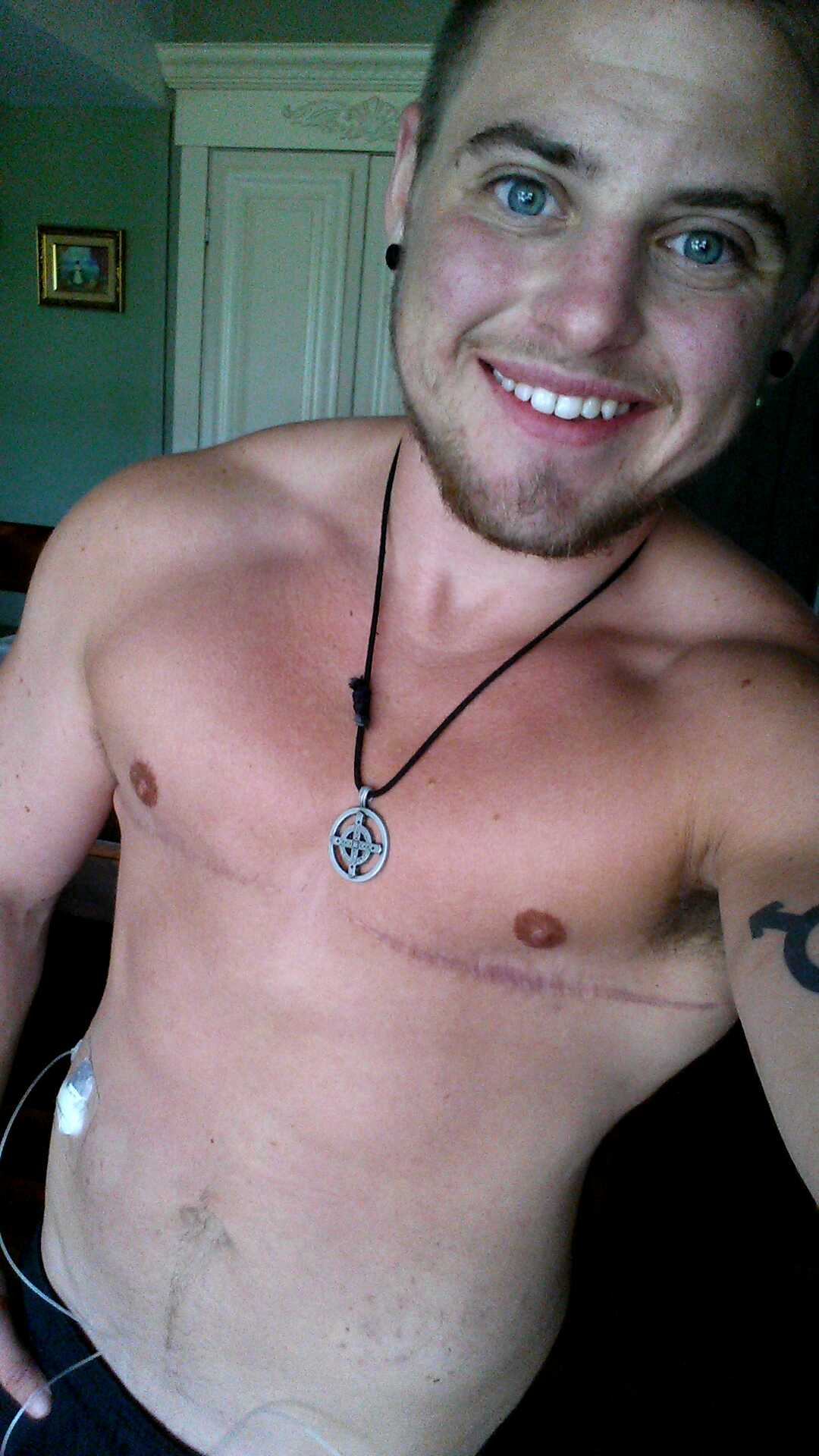 C: What activities do you usually do when you hit the gym?
C: What activities do you usually do when you hit the gym?
J: I usually start my gym sessions by running on the treadmill for at least a mile. I walk at 3.0 mph pace for a minute then go to either 6.5 or 7.0 mph at 2.0 incline for the remainder of that mile interval. Sometimes I’ll sprint for a quarter of a mile then get off do either some pushups or burpees then repeat the process. At this point I do some stretching before I hit the weight section. I usually focus on a specific body part or parts each day: shoulders, back and biceps, chest and triceps, legs, etc. I take how my body is feeling into consideration and plan to be flexible if any desired machine is occupied. I don’t always have a set plan, but this is a recent goal of mine-- to get into a more regimented routine. I’m also known by my friends to randomly do pushups or headstands at anytime or place.
C: Do you have any advice for someone trying to get in shape/transform their body?
J: Be consistent in going to the gym or engaging in physical activity. The gym is not necessary for achieving fitness. Stay motivated and make your workouts fun. Change things up to keep it fresh and to confuse your muscles. Doing the same things over and over will limit your growth and most likely cause you to plateau. Be disciplined in the kitchen, but don’t deprive yourself of foods you enjoy. Everything is OK in moderation.
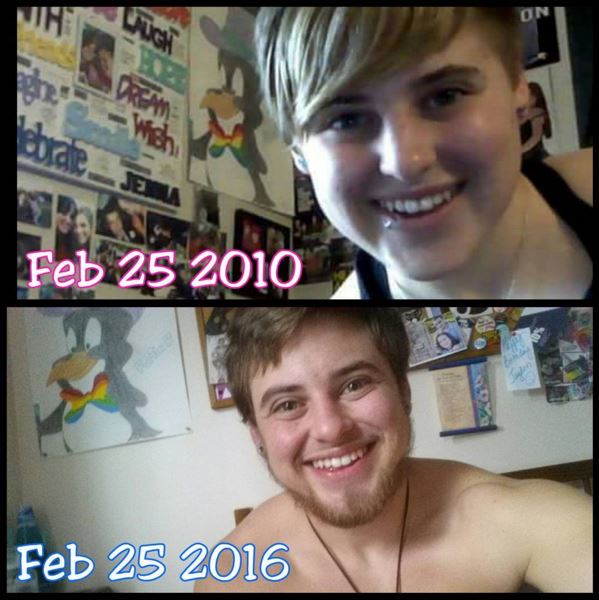 C: How specifically did the trans-man you met help you accept or love yourself more?
C: How specifically did the trans-man you met help you accept or love yourself more?
J: I can say that he opened my eyes to the possibilities of transitioning. He introduced me to the Trans Youtube community where people with this background share their stories and journeys throughout their transition. After learning about what transgender was, I found comfort in knowing I wasn’t the only one who had these feelings their entire lives. Watching these videos allowed me to better understand the process transitioning and its effects. I’d say for about 6 months I obsessively watched youtube videos of voice changes and body changes from guys who were already on hormones and for good reasons; I knew that this was something I had to do in order to finally feel at peace with my own self-image.
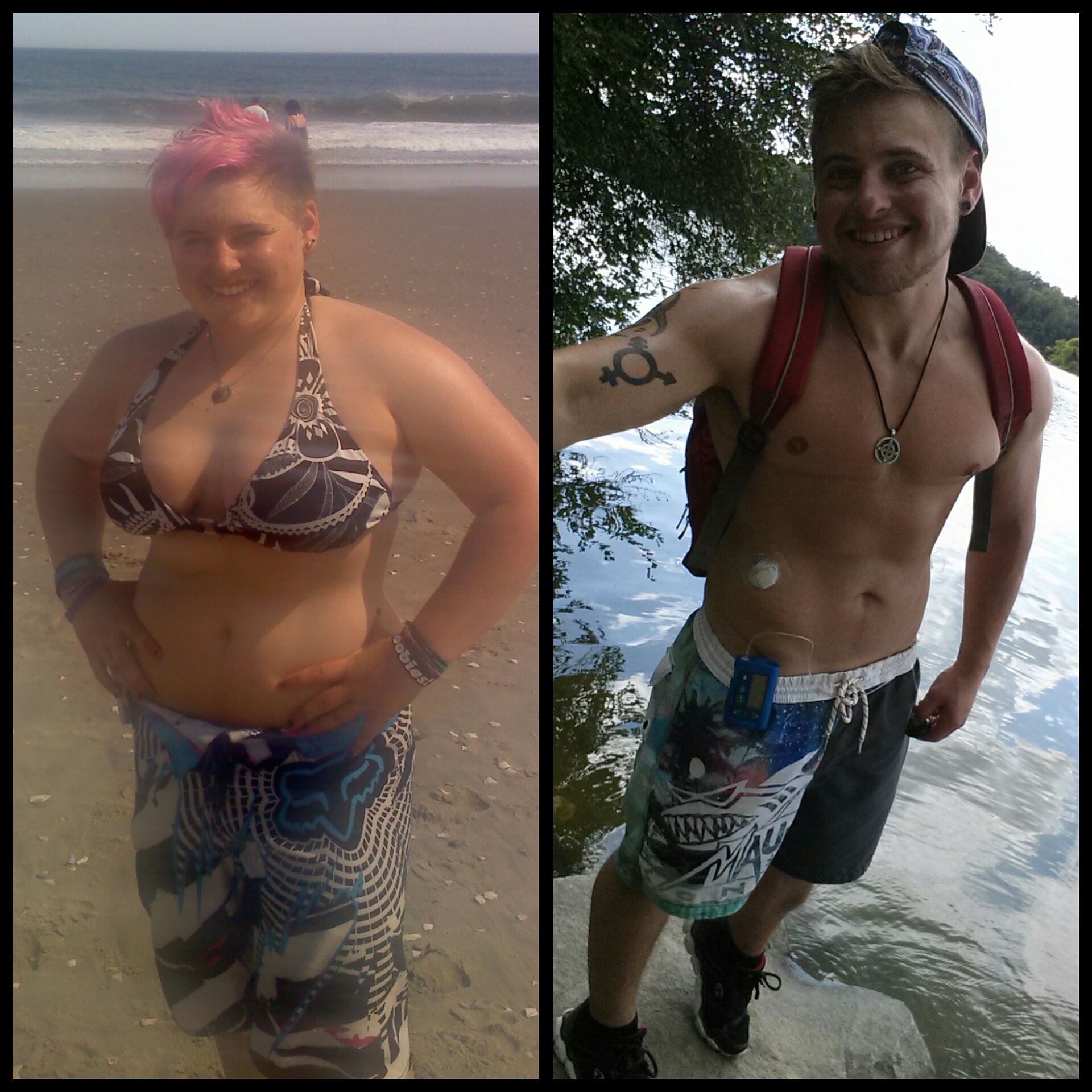
C: You mentioned earlier that you had a strong support network thus far. Can you talk a little bit more about how they supported and continue to support you?
J: My support network is just there for me. They let me know that they care and that my happiness is all they ever wanted for me. They showed that they love me no matter what the circumstances. It was hard for them to get used to calling me male pronouns and my new name, Jayden, but that didn’t bother me because I knew they were trying their best to support me. My support network would correct themselves when they slipped and correct others if they slipped. The act of trying was good enough because I knew in time it would become easier. For 21 years I was referred to as one pronoun, “she,” and name “Jenna”. I understood that it’s difficult to suddenly switch pronouns and name. It was even hard for me. It was not only a transition for me but for everyone in my life and that’s important to remember when being misgendered or called the wrong name. For me, it only becomes a problem if someone maliciously or purposefully ignores my wishes and misgenders me or calls me the wrong name.
C: Do you have any recommendations for our readers on how to build a support network this strong?
J: Surround yourself with people who will not necessarily understand you but accept you for who you are. It is not their understanding but their acceptance that is important.
C: Can you talk more about therapy and how that has helped you move forward a better person?
J: Although therapy can often be stigmatized, it shouldn’t be. Going to therapy doesn’t make you weak or incapable of figuring things out. Having someone to talk to who is unbiased to your situation can be refreshing and quite rewarding. It can help you to process, evaluate, and work through any situation you feel the need to talk about.


This feature was sponsored by APOP Studios' Creative Stress Management Workshops. Schedule your group stress management workshop today! Great for work and school events. Email info@apopstudios.com or find more information at www.apopstudios.com/movingmindfully.













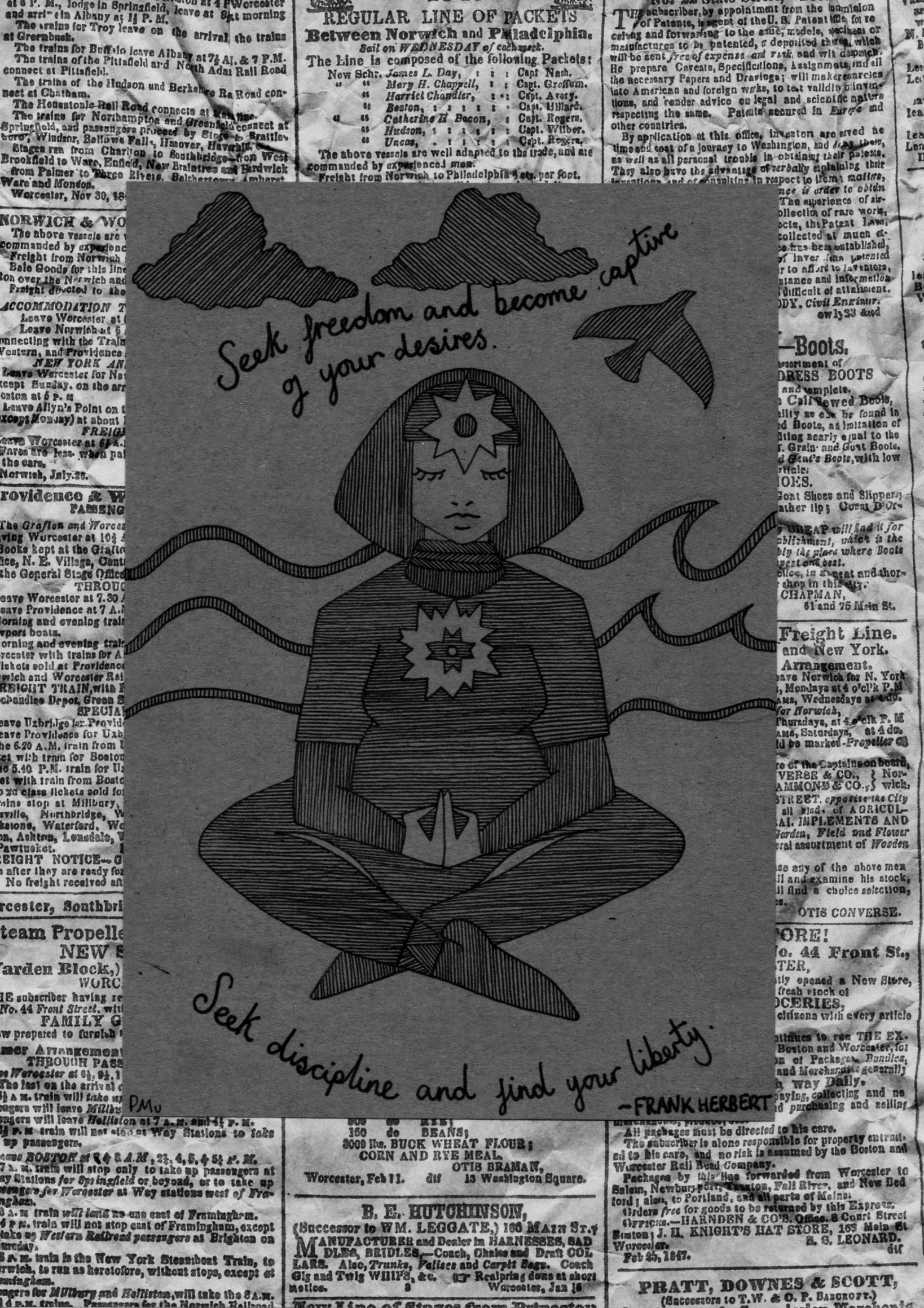 Tell us a little bit about your hustle and your happiness journey.
Tell us a little bit about your hustle and your happiness journey.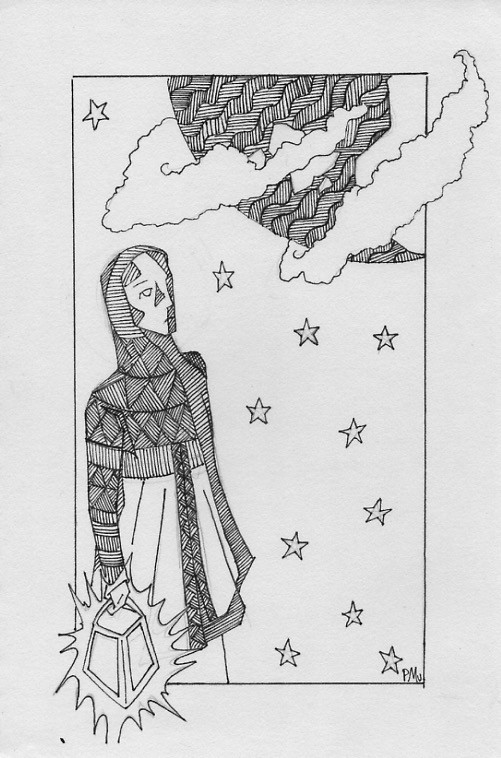 What do you do to de-stress after or during a long, stressful day?
What do you do to de-stress after or during a long, stressful day? What are you currently reading or listening to (podcasts, books, blogs, etc.)?
What are you currently reading or listening to (podcasts, books, blogs, etc.)?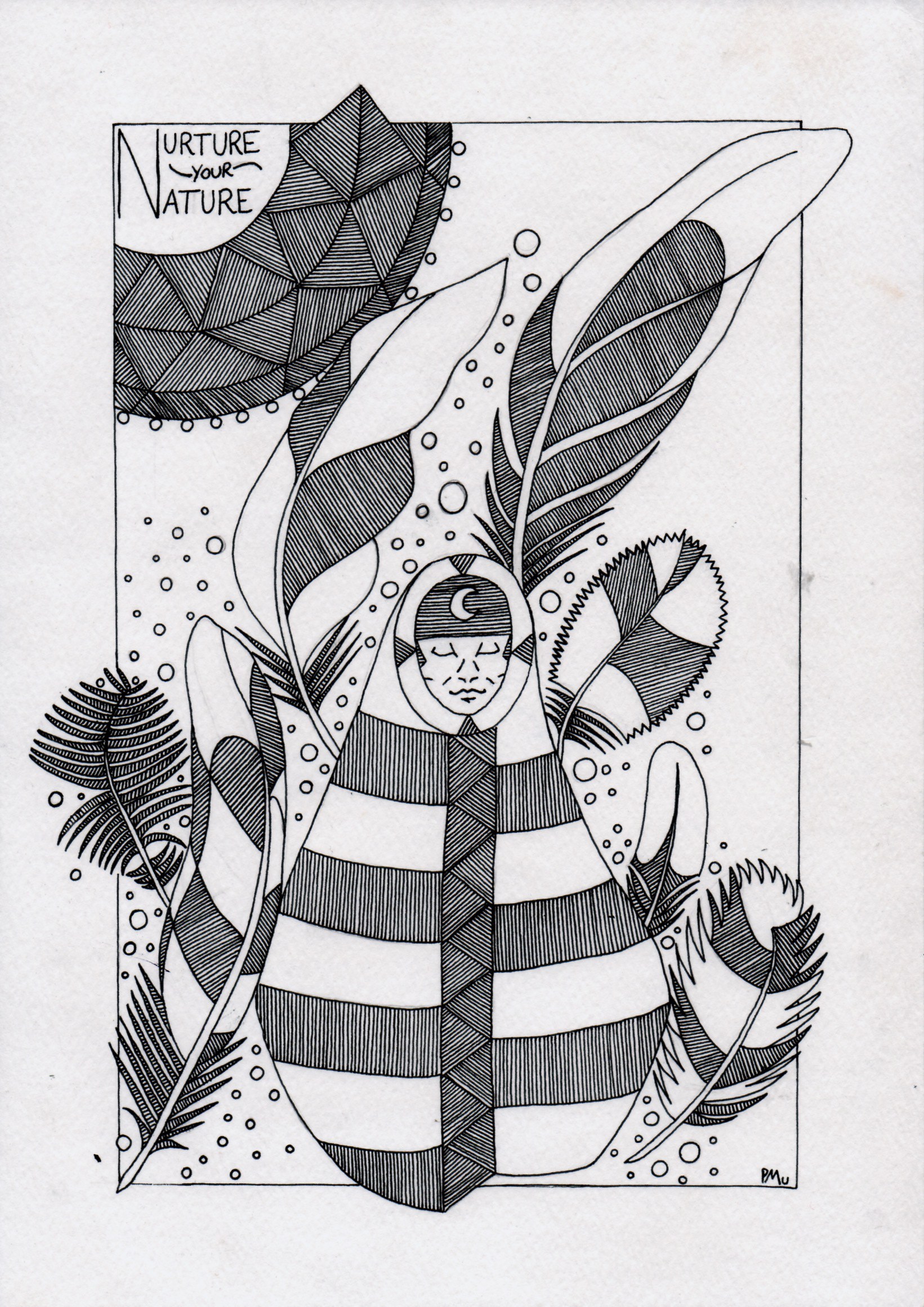 What is one piece of advice you'd give to someone just starting their happy hustle journey?
What is one piece of advice you'd give to someone just starting their happy hustle journey?


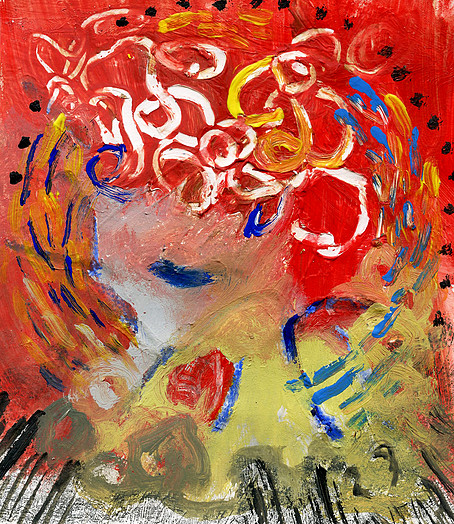
 What is one piece of advice you'd give to someone just starting their happy hustle journey?
What is one piece of advice you'd give to someone just starting their happy hustle journey?

 Tell us a little bit about your hustle and your happiness journey.
Tell us a little bit about your hustle and your happiness journey.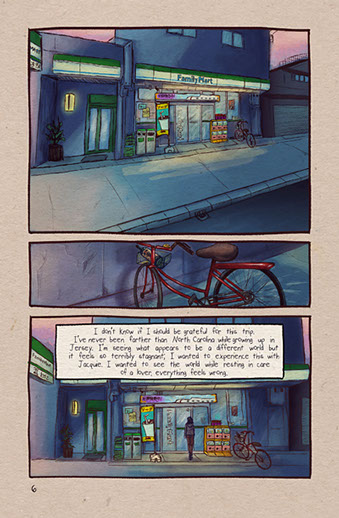 What do you do to de-stress after or during a long, stressful day?
What do you do to de-stress after or during a long, stressful day?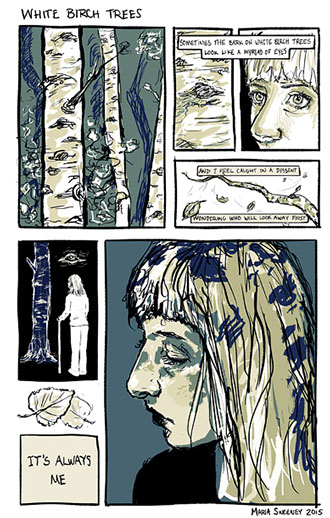 What are you currently reading or listening to (podcasts, books, blogs, etc.)?
What are you currently reading or listening to (podcasts, books, blogs, etc.)?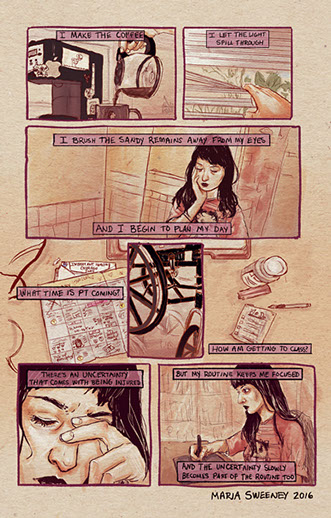 What is one piece of advice you'd give to someone just starting their happy hustle journey?
What is one piece of advice you'd give to someone just starting their happy hustle journey?


 I did well enough in football to have colleges looking to recruit me. Football was my life! My whole high school career I lived in the weight room and ended up going to Marietta college. I played there for two years - two entire years of the sport I loved...at the next level. Then life started calling.
I did well enough in football to have colleges looking to recruit me. Football was my life! My whole high school career I lived in the weight room and ended up going to Marietta college. I played there for two years - two entire years of the sport I loved...at the next level. Then life started calling. By this time, life was full of soccer practices, games and tournaments. Bradley, my son, was on a travel soccer team and Brooklyn, my daughter, was just starting in a recreational league. Of course, I was coaching them both. I coached them both through the years... until November 9, 2013. That's the day our worlds were turned upside down.
By this time, life was full of soccer practices, games and tournaments. Bradley, my son, was on a travel soccer team and Brooklyn, my daughter, was just starting in a recreational league. Of course, I was coaching them both. I coached them both through the years... until November 9, 2013. That's the day our worlds were turned upside down. Now Bradley is in a wheelchair, on a ventilator, has minimal controlled movements, and communicates by blinking his eyes. Now, with all that, he still doesn't qualify for rehab, so I do all his rehab, everyday when I get home from work, but I also have to be a father to Brook. I'm doing Bradley's rehab and helping Brooklyn with her homework. I'm taking her taking her to soccer practices and games. I'm cooking dinner and making sure she is showered. I'm giving her the daddy/daughter time she needs to grow up healthy and happy.
Now Bradley is in a wheelchair, on a ventilator, has minimal controlled movements, and communicates by blinking his eyes. Now, with all that, he still doesn't qualify for rehab, so I do all his rehab, everyday when I get home from work, but I also have to be a father to Brook. I'm doing Bradley's rehab and helping Brooklyn with her homework. I'm taking her taking her to soccer practices and games. I'm cooking dinner and making sure she is showered. I'm giving her the daddy/daughter time she needs to grow up healthy and happy.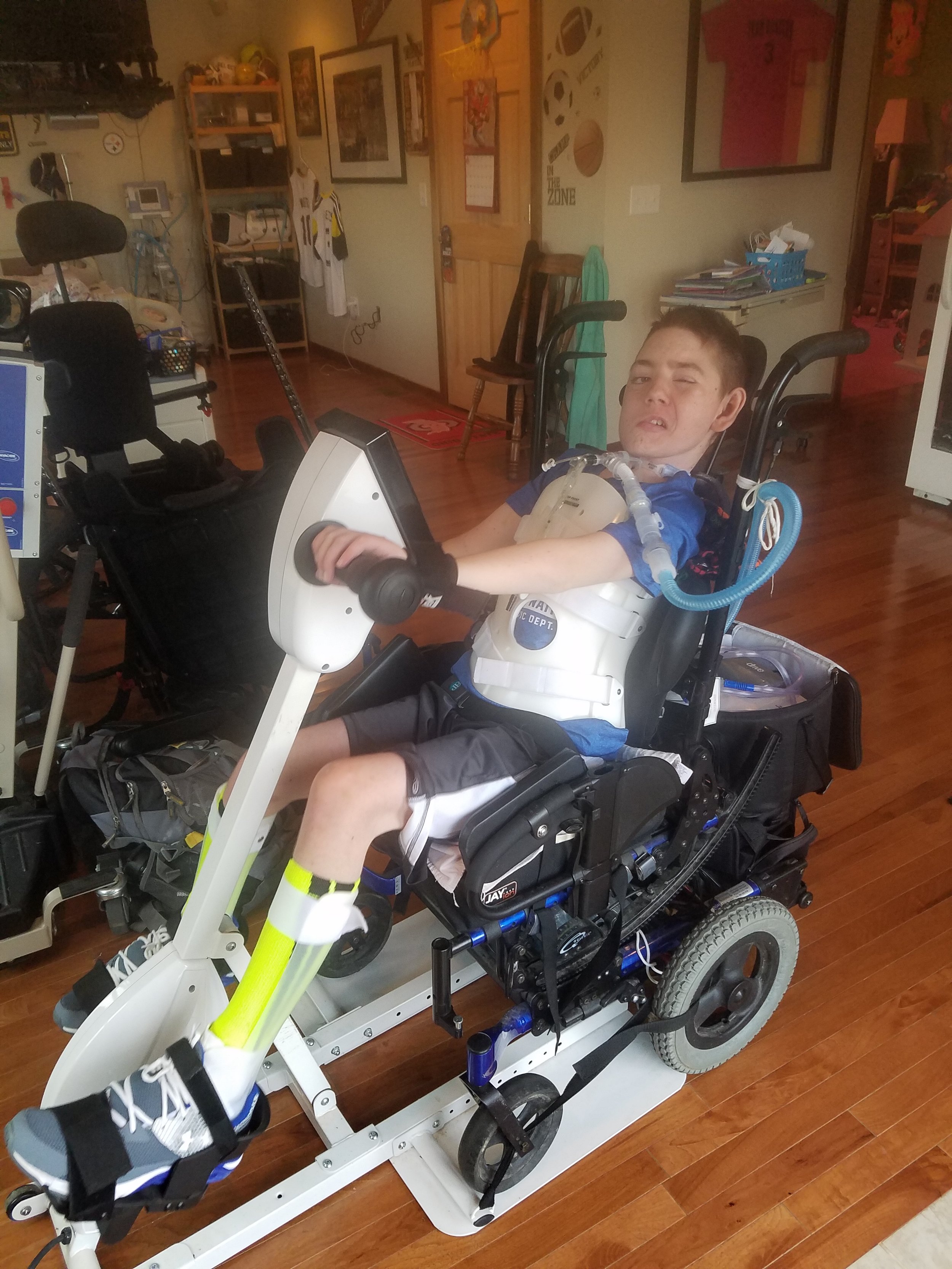 What do you do to de-stress after or during a long, stressful day?
What do you do to de-stress after or during a long, stressful day?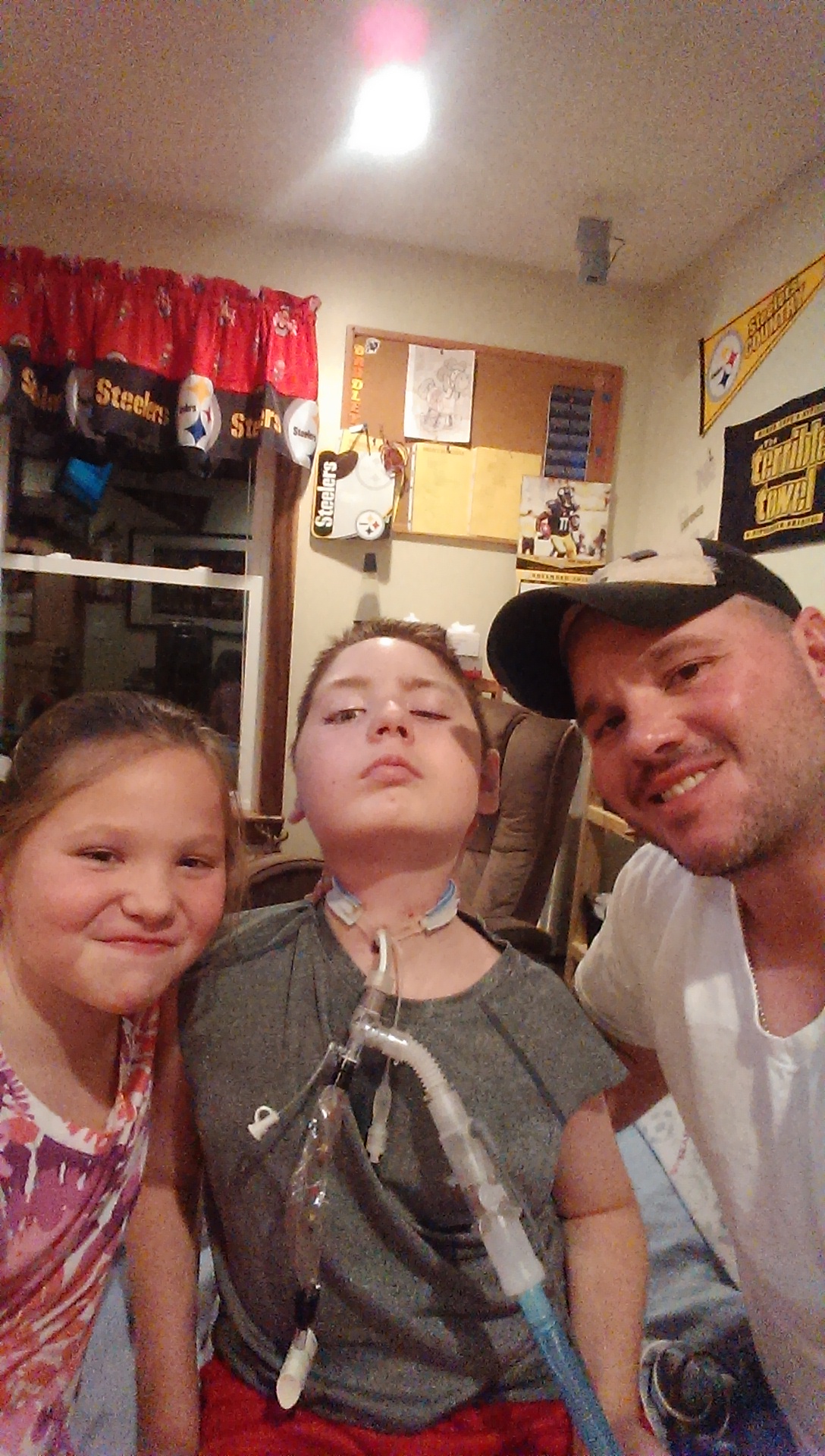 Where do you go for inspiration?
Where do you go for inspiration?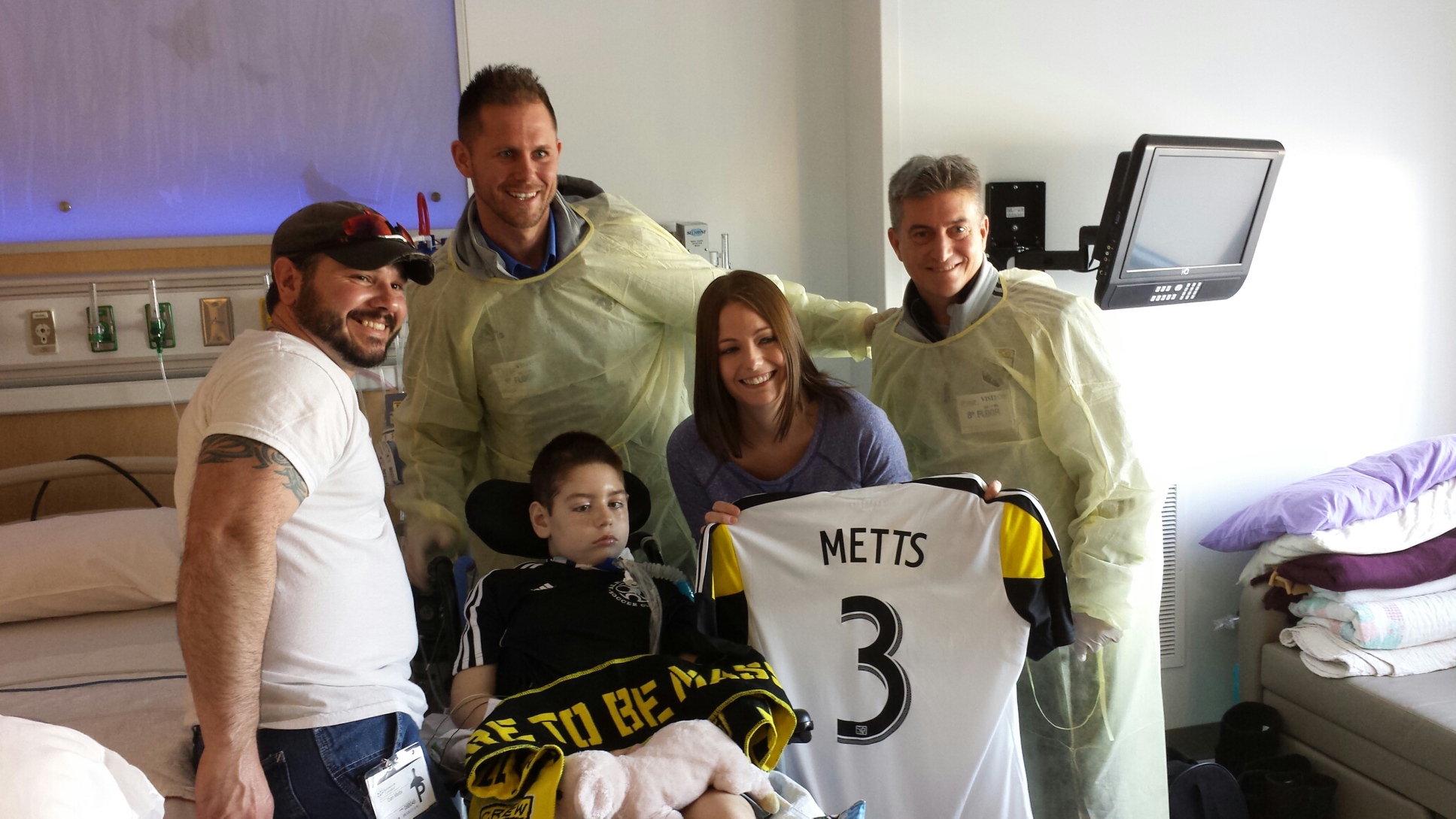 What is one piece of advice you'd give to someone just starting their happy hustle journey?
What is one piece of advice you'd give to someone just starting their happy hustle journey? In one word, sum up your life as a Happy Hustler.
In one word, sum up your life as a Happy Hustler. Honesty- I feel that if you are not honest, it will come back and bite you in the butt. First, you have to be honest with yourself. That's the hardest person to lie to! If you can't be honest with yourself when setting goals, then you can't set goals that you will ever reach. Being honest with others, keeps you on top of your game, it lets you focus on your goals instead of focusing on the next lie. Honesty gets you further in life.
Honesty- I feel that if you are not honest, it will come back and bite you in the butt. First, you have to be honest with yourself. That's the hardest person to lie to! If you can't be honest with yourself when setting goals, then you can't set goals that you will ever reach. Being honest with others, keeps you on top of your game, it lets you focus on your goals instead of focusing on the next lie. Honesty gets you further in life.
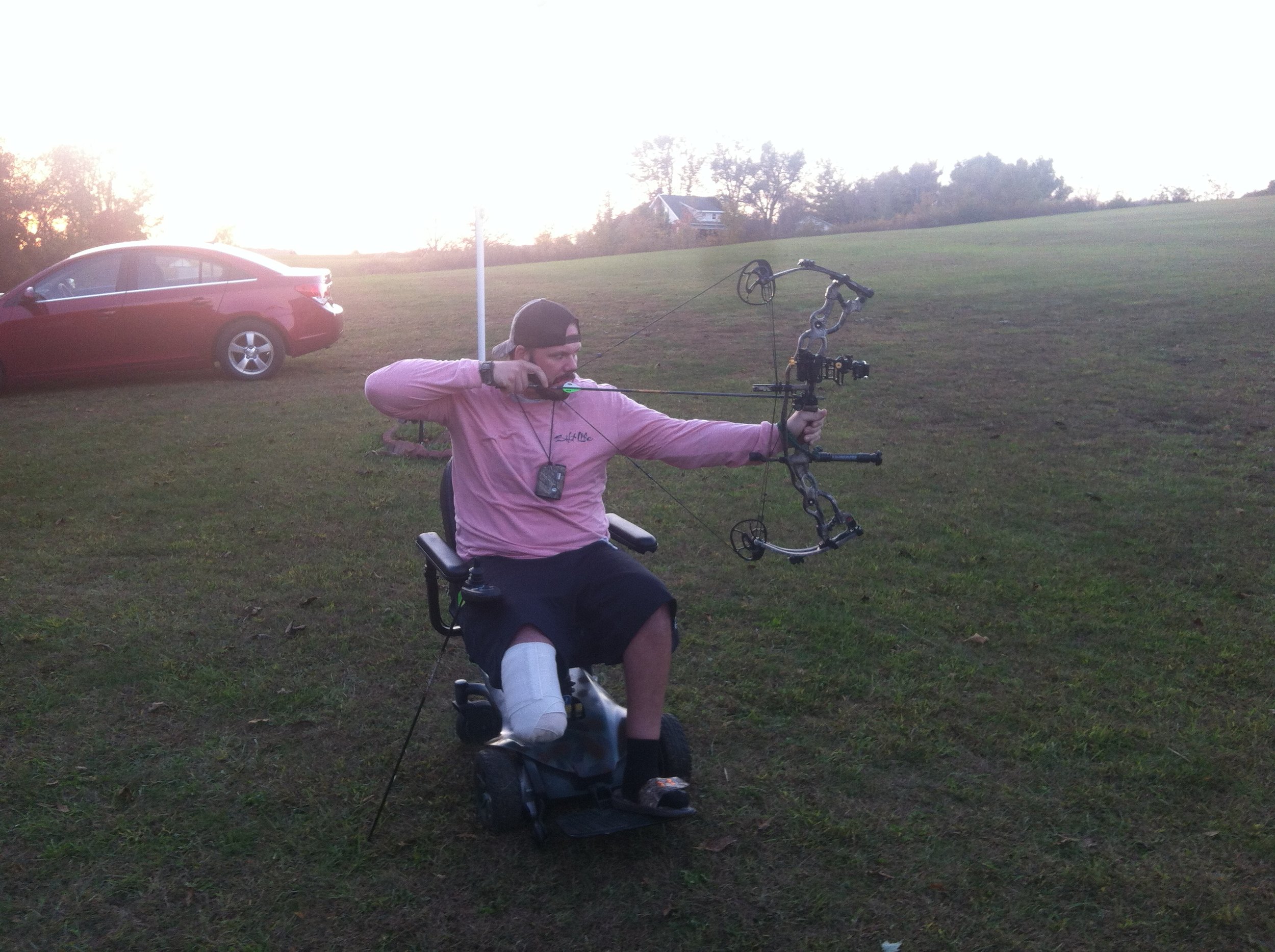 This was the start of some bad years in my life. I moved home and I started drinking heavily and using drugs. The pain of losing a game I loved and working so hard to make it to the next level crushed me. I was able to hide my troubles from the world and worked building houses while I attended Ohio University where I would eventually earn a degree in Specialized Studies in Psychology and Child and Family Life Studies. Then at the age of 28 I was told by my surgeon that double below the knee amputation would be my best option. I understood it could be an option due to the kind of pain I felt daily. From the time I woke up till I went to bed my feet hurt and if I did any activity it made my knees hurt worse than my feet and on some days my hips would start hurting bad too. Over the next 4-5 years I visited many Podiatrist and Orthopedic doctors. Most agreed with amputation, some didn’t and some had never even seen a case of what I had in real life. One thing they all agreed on is that I would experience a lot of pain my whole life living on these feet especially if I wanted to remain active. So at the end of all that it came down to this a choice, my choice to in my early 30’s amputate or start living a life of pain and take serious pain medicine daily to try and have some “normalcy” to life. At that moment I also knew I could not make this choice living the hidden life of addiction and feel 100% confident in it. I was able to stop using and became a man of faith, changed the way I thought and the kinds of thoughts I would allow myself to have and nothing has been the same since and life has been amazing. After a year of prayer, weighing my options and even seeing a therapist a few months I made the choice to have my right foot amputated on September 15, 2016. That fall I spent a lot of time in the woods during archery season healing both physically and mentally as I adjusted to learning how to live as an amputee. All that time setting in such a beautiful place watching life at its most basic gave me time to think on where I would like to take my life from here and the impact I would like to make with my story.
This was the start of some bad years in my life. I moved home and I started drinking heavily and using drugs. The pain of losing a game I loved and working so hard to make it to the next level crushed me. I was able to hide my troubles from the world and worked building houses while I attended Ohio University where I would eventually earn a degree in Specialized Studies in Psychology and Child and Family Life Studies. Then at the age of 28 I was told by my surgeon that double below the knee amputation would be my best option. I understood it could be an option due to the kind of pain I felt daily. From the time I woke up till I went to bed my feet hurt and if I did any activity it made my knees hurt worse than my feet and on some days my hips would start hurting bad too. Over the next 4-5 years I visited many Podiatrist and Orthopedic doctors. Most agreed with amputation, some didn’t and some had never even seen a case of what I had in real life. One thing they all agreed on is that I would experience a lot of pain my whole life living on these feet especially if I wanted to remain active. So at the end of all that it came down to this a choice, my choice to in my early 30’s amputate or start living a life of pain and take serious pain medicine daily to try and have some “normalcy” to life. At that moment I also knew I could not make this choice living the hidden life of addiction and feel 100% confident in it. I was able to stop using and became a man of faith, changed the way I thought and the kinds of thoughts I would allow myself to have and nothing has been the same since and life has been amazing. After a year of prayer, weighing my options and even seeing a therapist a few months I made the choice to have my right foot amputated on September 15, 2016. That fall I spent a lot of time in the woods during archery season healing both physically and mentally as I adjusted to learning how to live as an amputee. All that time setting in such a beautiful place watching life at its most basic gave me time to think on where I would like to take my life from here and the impact I would like to make with my story. 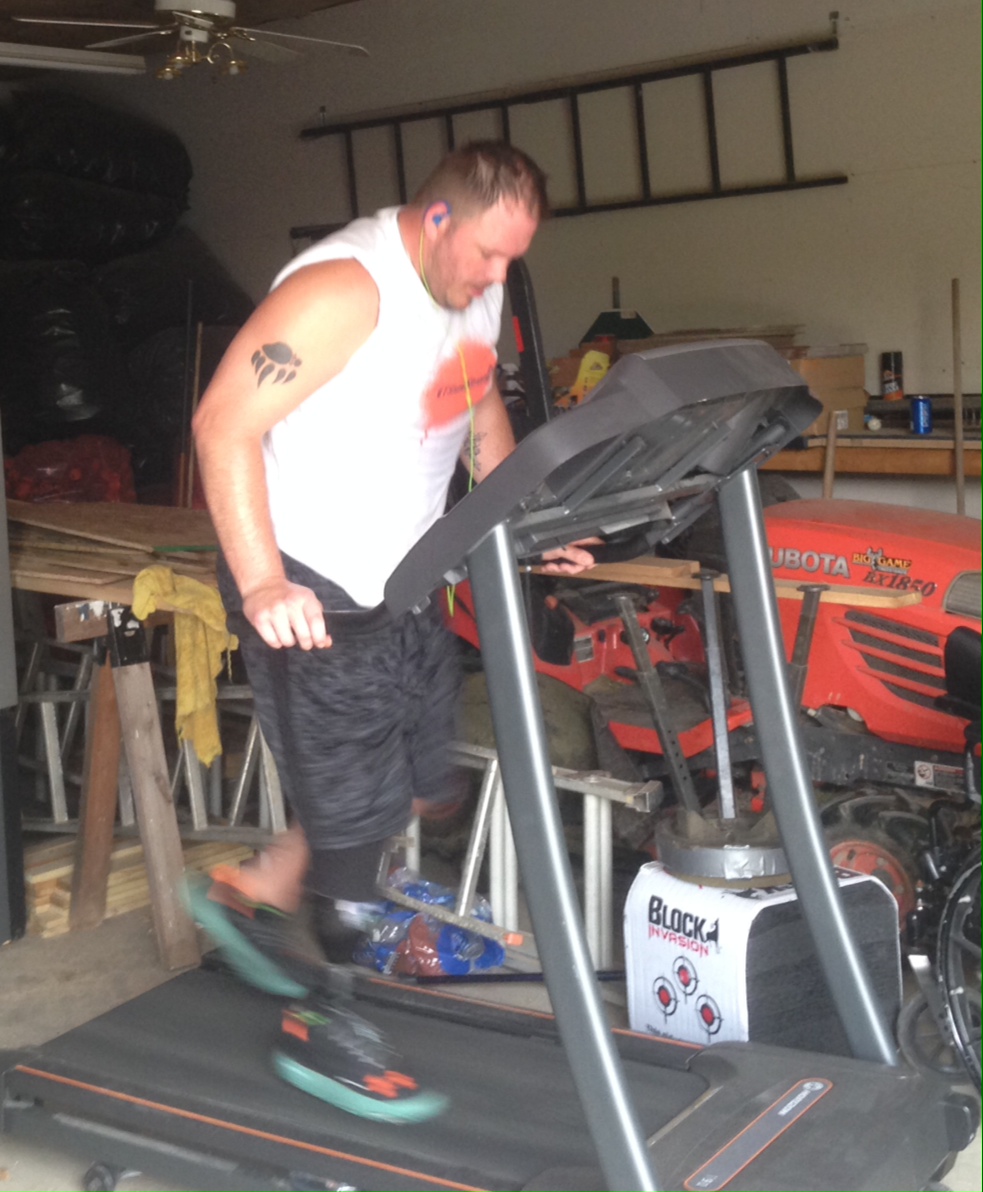 Tell us a little bit about your hustle and your happiness journey.
Tell us a little bit about your hustle and your happiness journey.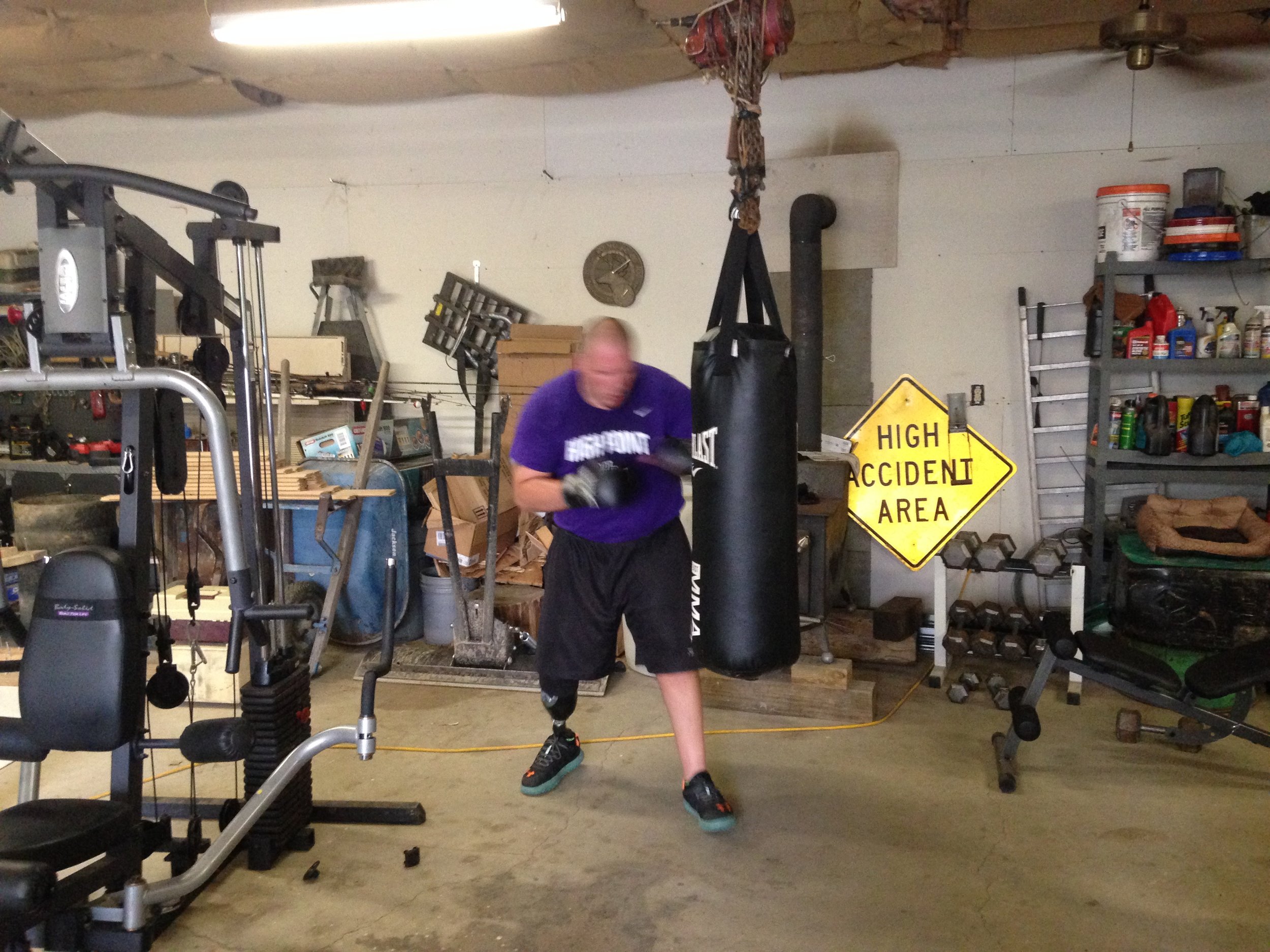
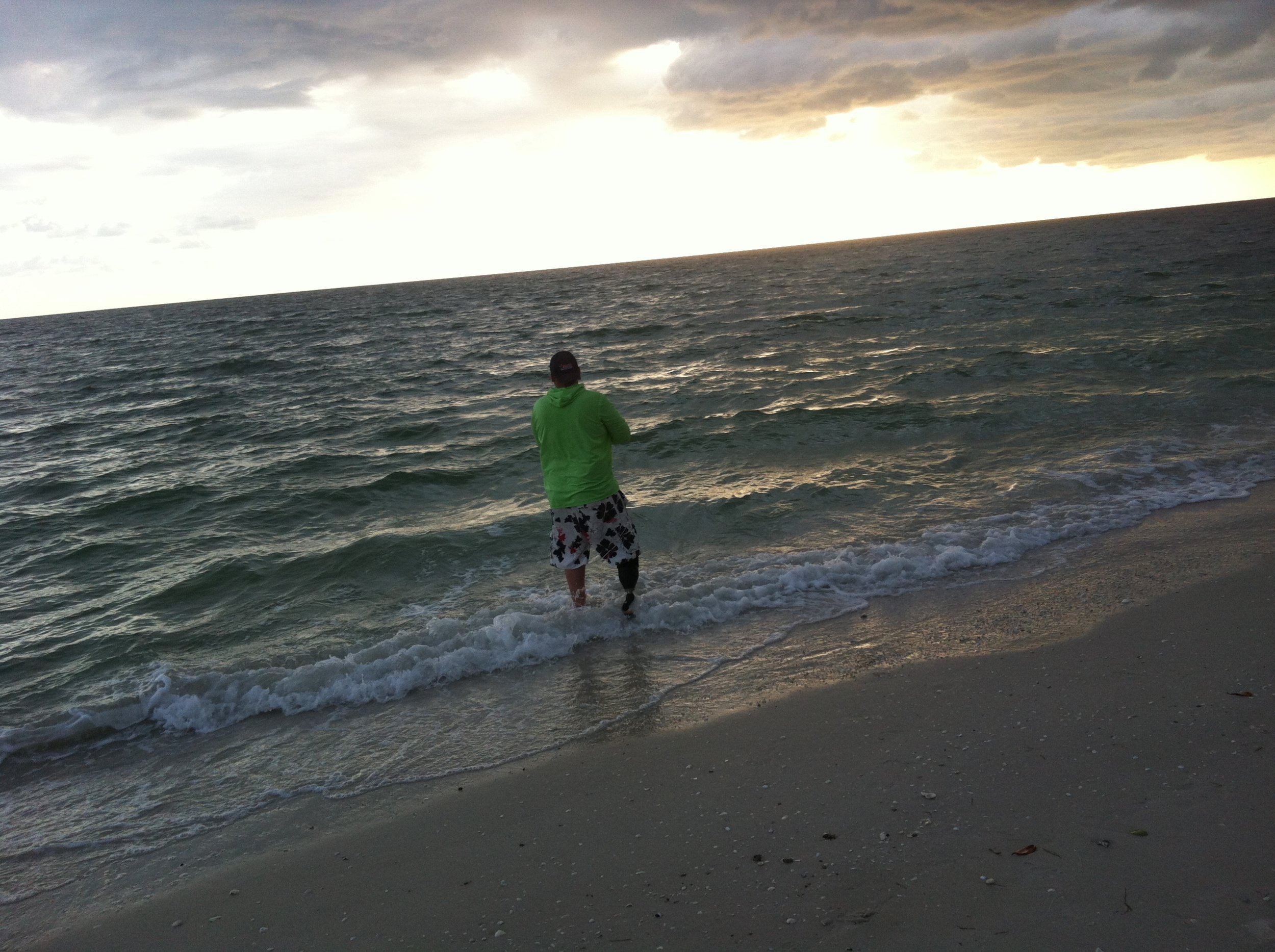 Where do you go for inspiration?
Where do you go for inspiration?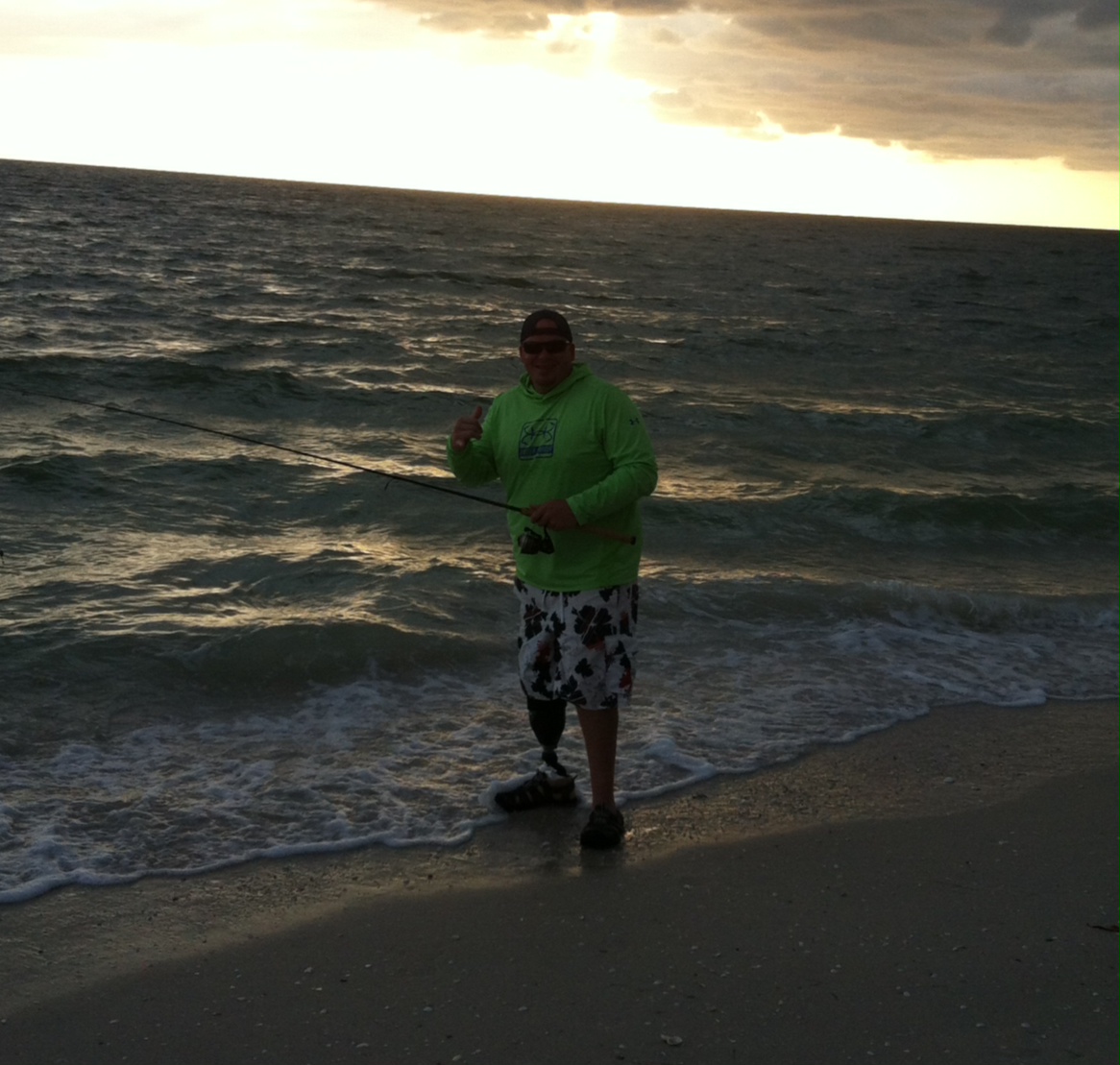

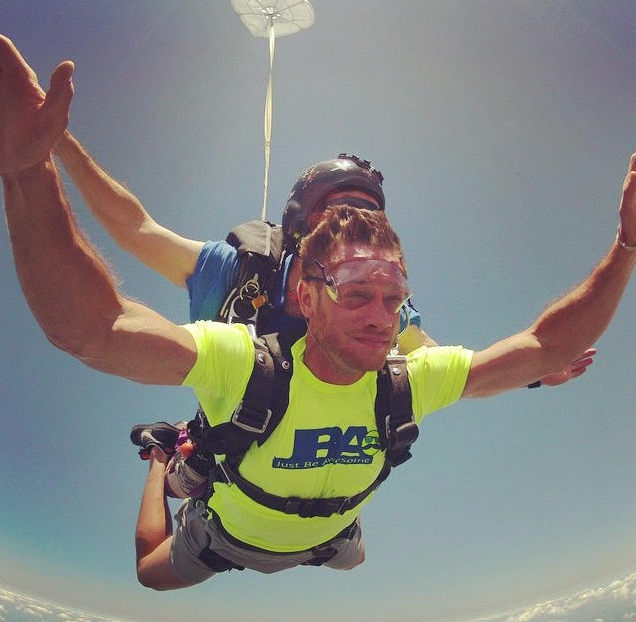

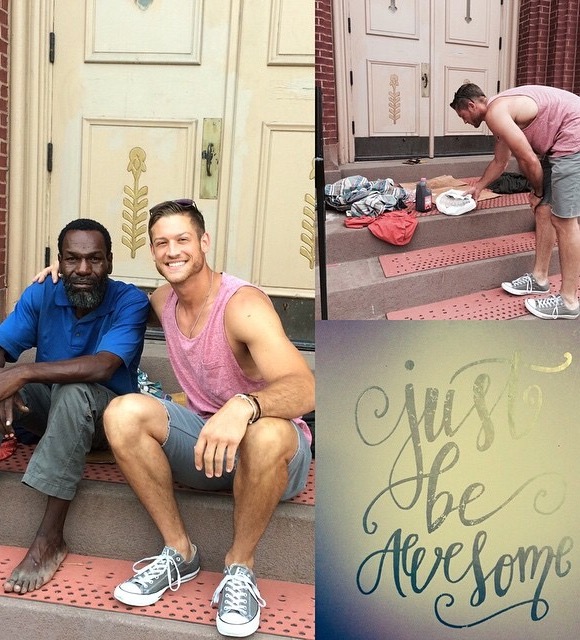
 In one word, sum up your life as a Happy Hustler.
In one word, sum up your life as a Happy Hustler.





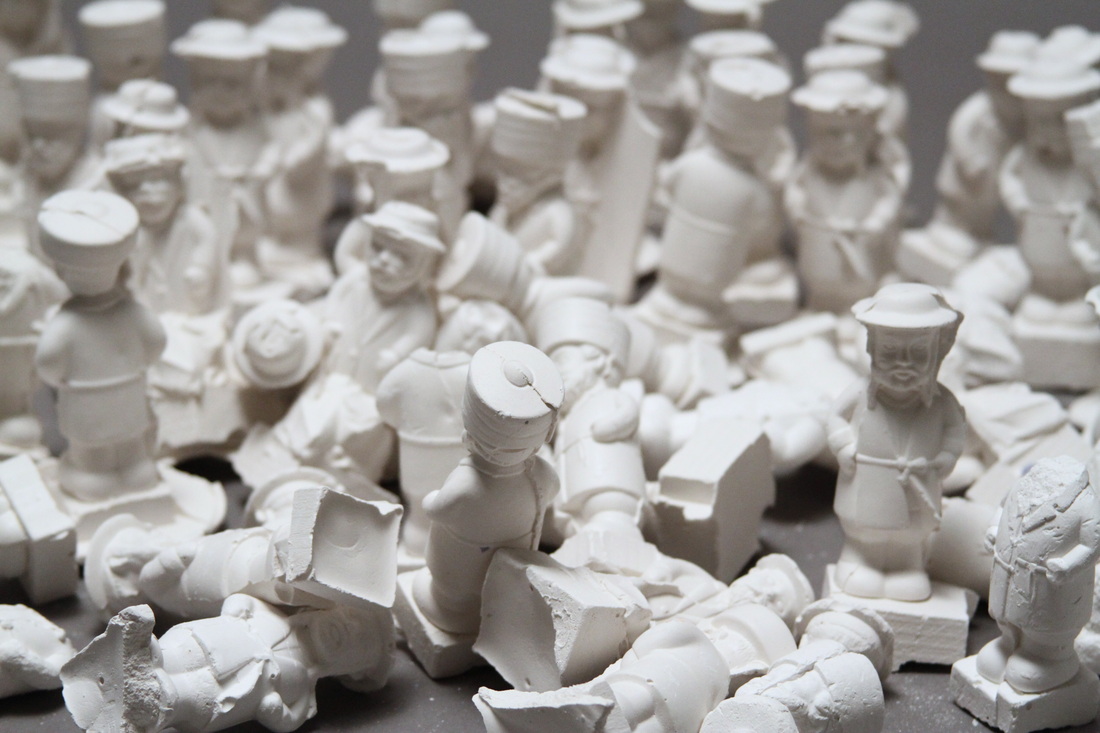
 Name: Lucy Smith
Age: 26
Name: Lucy Smith
Age: 26
 One of the defining moments in Lucy’s journey came several years ago when a family member slipped her an informational pamphlet about Cryosurgery. Cryosurgery: surgery using the local application of intense cold to destroy unwanted tissue. In most instances the unwanted tissue are localized fat cells.
One of the defining moments in Lucy’s journey came several years ago when a family member slipped her an informational pamphlet about Cryosurgery. Cryosurgery: surgery using the local application of intense cold to destroy unwanted tissue. In most instances the unwanted tissue are localized fat cells.
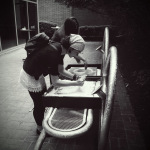 This feature was sponsored by APOP Studios’ Creative Stress Management Workshops. Schedule your group stress management workshop today! Great for work and school events. Email
This feature was sponsored by APOP Studios’ Creative Stress Management Workshops. Schedule your group stress management workshop today! Great for work and school events. Email 

 What caused this emotional turmoil? Jayden’s sexuality. It was what consumed his thoughts and overwhelmed his mind during this time in his life. Being outside the hetero-normative had and still has a cultural stigma. At 12 years of age, Jayden remembers the first time he acknowledged his attraction to the same sex; he didn't dare share those thoughts with anyone--at least not for a few more years. It wasn’t until he turned 17 that Jayden, a high school senior at the time, boldly came out as bi-sexual. Struggling to adjust to the strong opinions and hatred he perceived from the world, self-harm became part of his everyday routine. From 17 on, Jayden struggled, but not alone; he had a support network of family, friends and professionals. Therapy was an important part of working out his own internalized issues with sexuality. Therapy helped Jayden do some introspection for more answers during college and this process led him to begin to identify as gay at the age of 19. With the transitioning from one label to another more appropriate label, Jayden found a sense of relief, but he knew that label wasn’t quite right.
What caused this emotional turmoil? Jayden’s sexuality. It was what consumed his thoughts and overwhelmed his mind during this time in his life. Being outside the hetero-normative had and still has a cultural stigma. At 12 years of age, Jayden remembers the first time he acknowledged his attraction to the same sex; he didn't dare share those thoughts with anyone--at least not for a few more years. It wasn’t until he turned 17 that Jayden, a high school senior at the time, boldly came out as bi-sexual. Struggling to adjust to the strong opinions and hatred he perceived from the world, self-harm became part of his everyday routine. From 17 on, Jayden struggled, but not alone; he had a support network of family, friends and professionals. Therapy was an important part of working out his own internalized issues with sexuality. Therapy helped Jayden do some introspection for more answers during college and this process led him to begin to identify as gay at the age of 19. With the transitioning from one label to another more appropriate label, Jayden found a sense of relief, but he knew that label wasn’t quite right.


 C: Can you talk more about your sports background?
C: Can you talk more about your sports background? C: What activities do you usually do when you hit the gym?
C: What activities do you usually do when you hit the gym?





 In honor of First Friday, an exciting day once a month during which Philadelphia art galleries usually hold their opening receptions, we are pleased to highlight an artist who is changing the way we look at mental health. Kim Jackson's latest piece, Dissociation, hits the nail right on the head for so many people struggling with depression and anxiety. Her work not only gives its viewers a deeper understanding about the struggles of having a mental illness, but also demonstrates that these same negative emotions and thoughts CAN be used for positive social change by raising awareness.
In honor of First Friday, an exciting day once a month during which Philadelphia art galleries usually hold their opening receptions, we are pleased to highlight an artist who is changing the way we look at mental health. Kim Jackson's latest piece, Dissociation, hits the nail right on the head for so many people struggling with depression and anxiety. Her work not only gives its viewers a deeper understanding about the struggles of having a mental illness, but also demonstrates that these same negative emotions and thoughts CAN be used for positive social change by raising awareness. As I prepared the piece and put everything together, I realized I have never vocalized some of these feelings before. I had never spoken those words out loud, and I had never allowed anyone to see those intimate moments. It was the most difficult project I have ever worked on, but in the end, it was the absolute most rewarding. By allowing myself to truly be the most vulnerable I have ever been in public, I allowed myself to experience the kindness of others. Each and every person who saw my piece expressed to me how they personally connected to the piece, and how they relate to anxiety and depression. So many people shared their struggles and it helped me heal in a way no one can ever imagine. It helped me realize that hiding your struggles only holds you back and prevents you from moving on. Now, I am honest and truthful to my friends about my state of mind, and I ask for help if I recognize I need it. Putting myself fully into my art, has helped me become a happier, healthier person, and I hope my art has helped others the same way.
As I prepared the piece and put everything together, I realized I have never vocalized some of these feelings before. I had never spoken those words out loud, and I had never allowed anyone to see those intimate moments. It was the most difficult project I have ever worked on, but in the end, it was the absolute most rewarding. By allowing myself to truly be the most vulnerable I have ever been in public, I allowed myself to experience the kindness of others. Each and every person who saw my piece expressed to me how they personally connected to the piece, and how they relate to anxiety and depression. So many people shared their struggles and it helped me heal in a way no one can ever imagine. It helped me realize that hiding your struggles only holds you back and prevents you from moving on. Now, I am honest and truthful to my friends about my state of mind, and I ask for help if I recognize I need it. Putting myself fully into my art, has helped me become a happier, healthier person, and I hope my art has helped others the same way.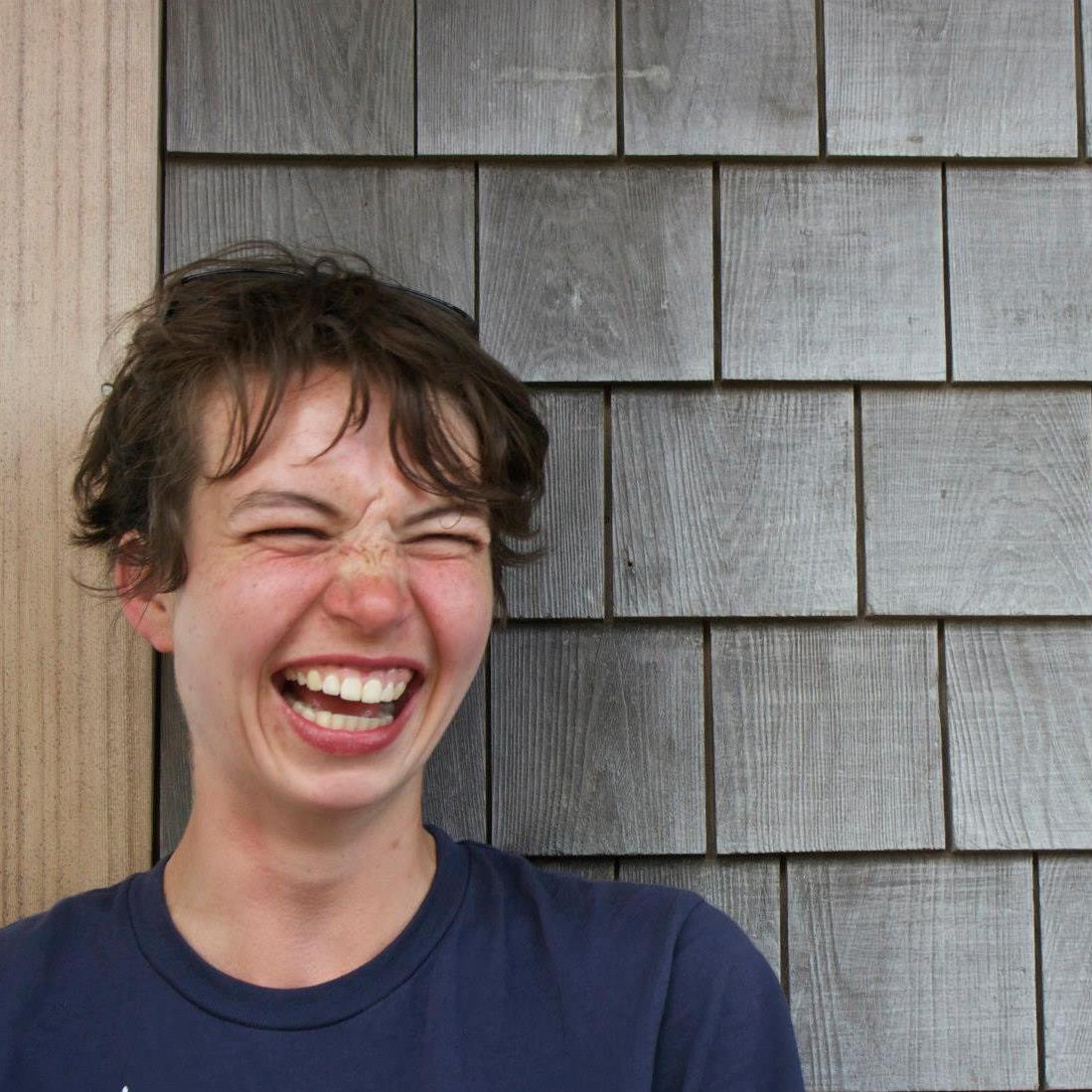

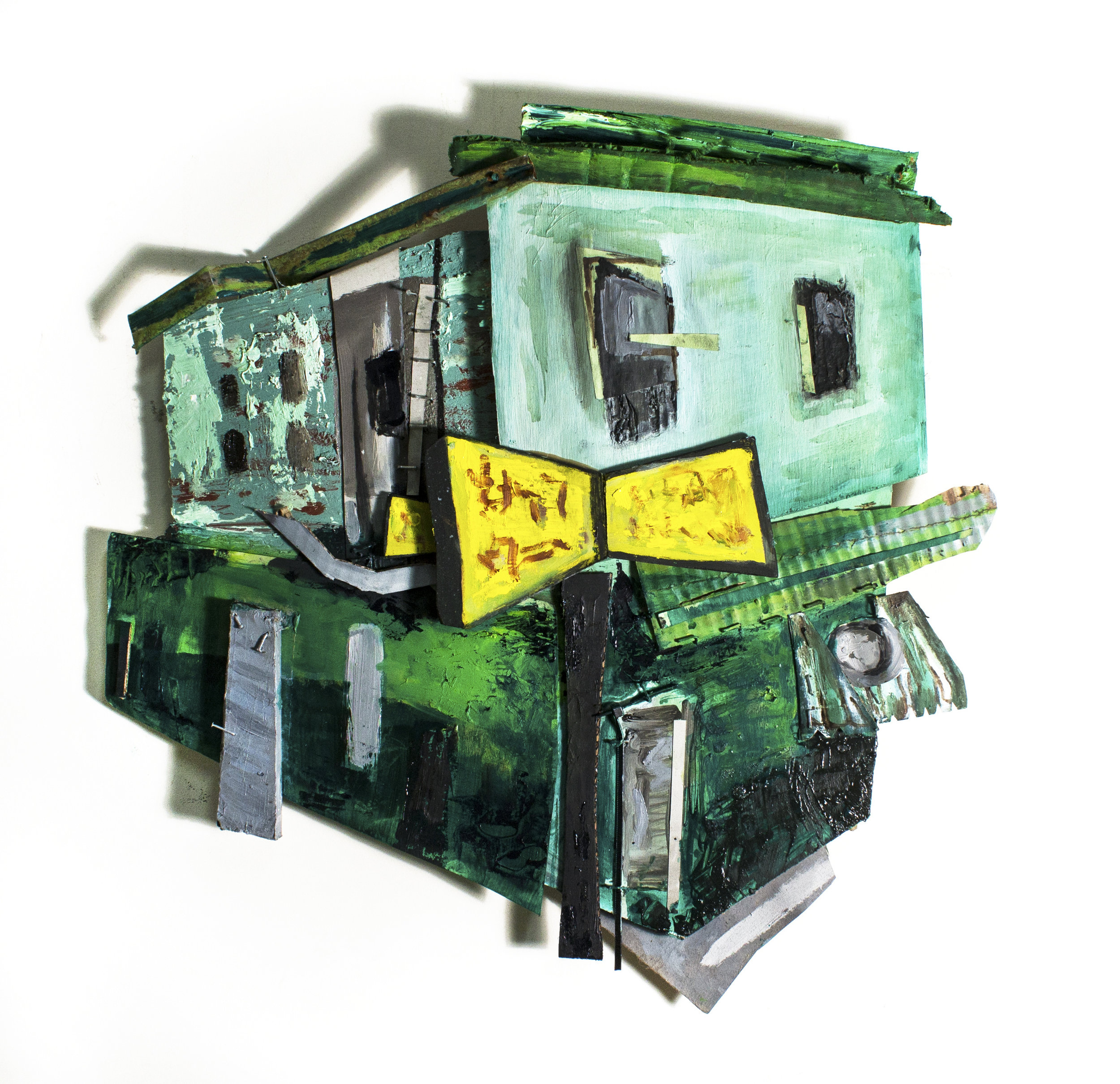
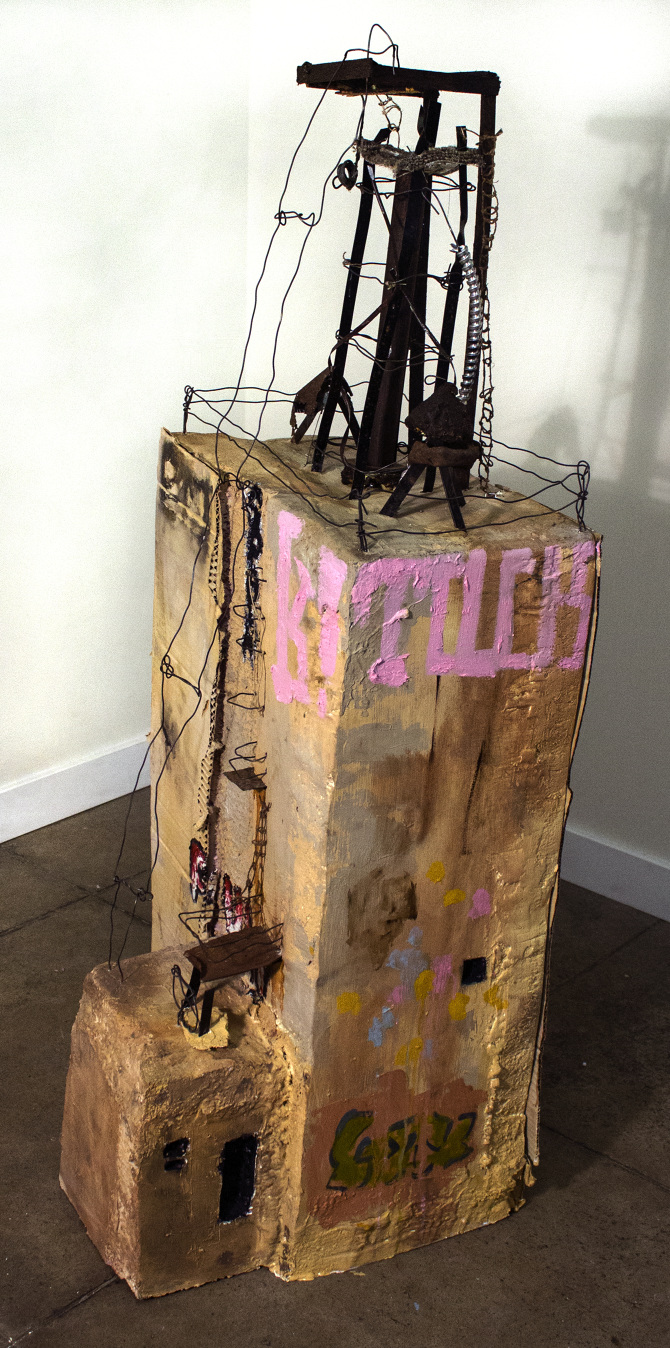


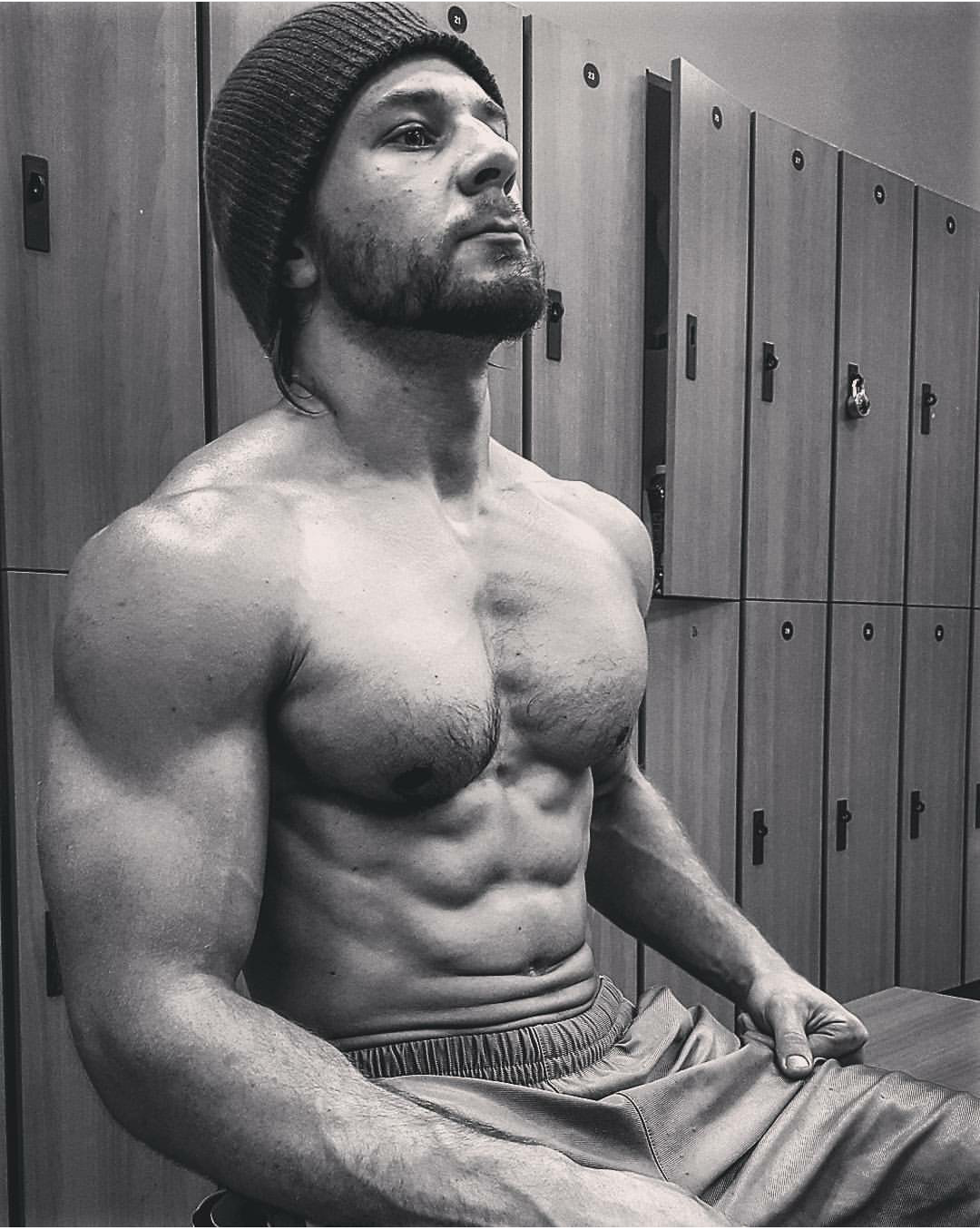 Name:
Name: